Get a 515+ on the MCAT. Guaranteed.


Pennsylvania State University Secondary Application
Pennsylvania state university secondary essay prompts, (if you have updated prompts, please submit them at updatesecondaries.com).
Prompts have been updated June 2023 . (Older essays, if available are below)
- If not currently enrolled in a full-time academic program, please summate your activities from the time of graduation from your baccalaureate program through the time of this application, as well as your plans between now and your matriculation to medical school. (75 words)
- Is there a unique aspect of your application that should be considered by the admissions committee? (75 words)
- Explain why you decided to apply to the Penn State College of Medicine. (75 words)
- Write a short paragraph describing a significant experience you have had working in a team setting. (250 words)
- Write a short statement describing how you envision using your medical education to advance care for under-represented or marginalized populations. (250 words)
Primary Deadline: Usually around Nov 15th Secondary Deadline : January Secondary Fee : $90 FAP Waiver : Full Fee Waived Casper Required : Yes PREview Required: No Screens Applications : No Accepts Application Updates : No
Pennsylvania State University College of Medicine Mission:
The College of Medicine (and our academic hub, Penn State Health Milton S. Hershey Medical Center) are committed to enhancing the quality of life through improved health, the professional preparation of those who will serve the health needs of others, and the discovery of knowledge that will benefit all.
Pennsylvania State University College of Medicine Vision:
The College of Medicine’s vision is to improve health through our missions of education, research, patient care and community health. While research and education are distinct lines of endeavor from patient care services, the academic and clinical enterprises work synergistically to advance the unified purpose of improving health. The College of Medicine strategic plan reflects this reality, and contains goals and initiatives that seek to advance research and education while leveraging the clinical strengths of Penn State Health.
Pennsylvania State University College of Medicine Values:
The College of Medicine is committed to R.I.T.E values: respect, integrity, teamwork and excellence. It strives to promote a respectful work and learning environment, characterized by collaborative and shared-credit behaviors, to embrace diverse backgrounds, talents, and perspectives, and to act in a compassionate, thoughtful, considerate and kind manner. The College values integrity, encouraging persistent best efforts, moral courage to ask hard questions, and fair treatment of others. It supports teamwork and the underlying values of sharing and trust, with the goal of ensuring the best experience for co-workers, patients, and trainees. Finally, the College of Medicine pursues excellence by aligning individual performance with the mission, vision, values, and strategic imperatives and a solution-focused culture.
Older Essays:
- If not currently enrolled in a full-time academic program, please summate your activities from the time of graduation from your baccalaureate program through the time of this application, as well as your plans between now and your matriculation to medical school. (Maximum 75 words) How to Write About Your Gap Years in Secondary Essays
- Is there a unique aspect of your application that should be considered by the admissions committee? (Maximum 75 words)
- Explain why you decided to apply to Penn State College of Medicine. (Maximum 75 words) How to Answer Secondary Prompts about “Why Us”
- Please write a short paragraph describing a significant experience you have had working in a team setting. (Maximum 250 words)
- Write a short statement describing how you envision using your medical education to advance care for under-represented or marginalized populations. (Maximum 250 words) How To Answer Secondary Prompts About The Future
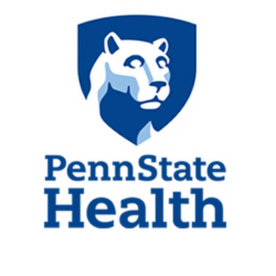
OTHER SCHOOLS
Drexel university college of medicine secondary application, geisinger commonwealth school of medicine secondary application, lake erie college of osteopathic medicine secondary application, lewis katz school of medicine at temple university secondary application, pennsylvania state university college of medicine secondary application, perelman school of medicine at university of pennsylvania secondary application, philadelphia college of osteopathic medicine secondary application, sidney kimmel medical college at thomas jefferson university secondary application, university of pittsburgh school of medicine secondary application, search site.

5 MOST POPULAR PODCASTS
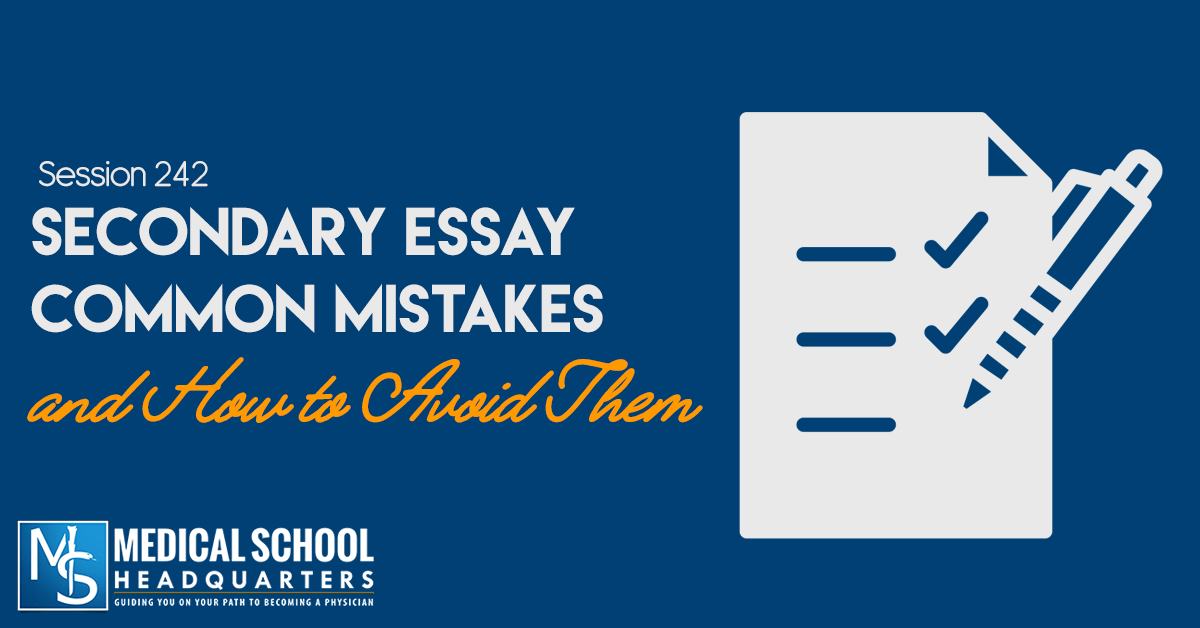
Secondary Essay Common Mistakes and How to Avoid Them
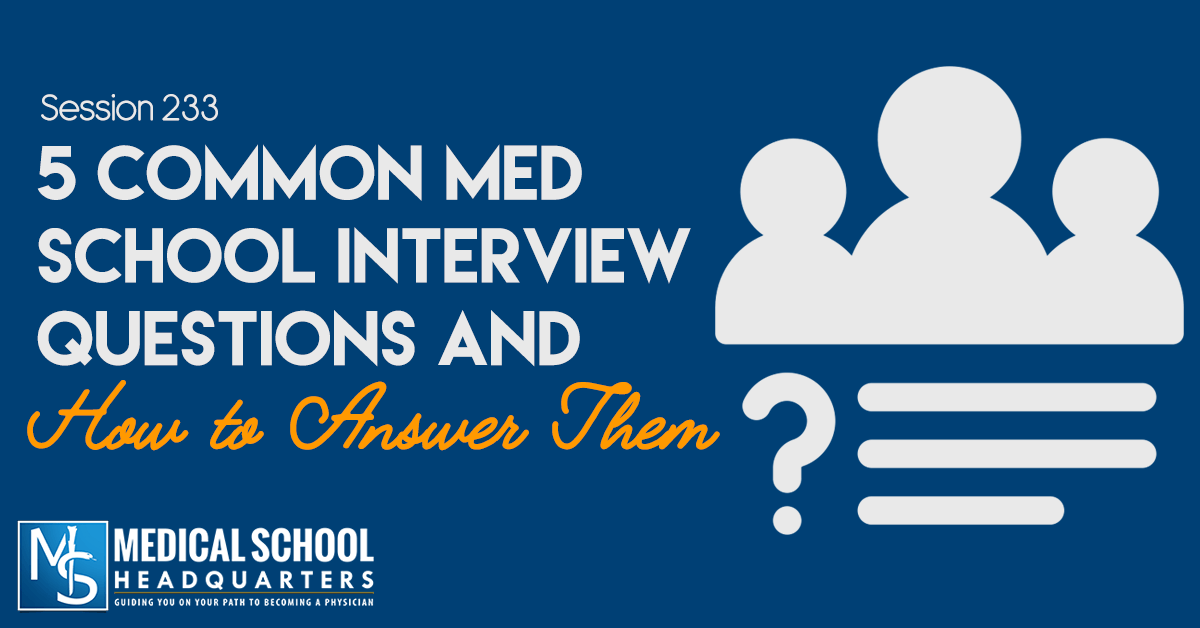
5 Common Med School Interview Questions and How to Answer Them
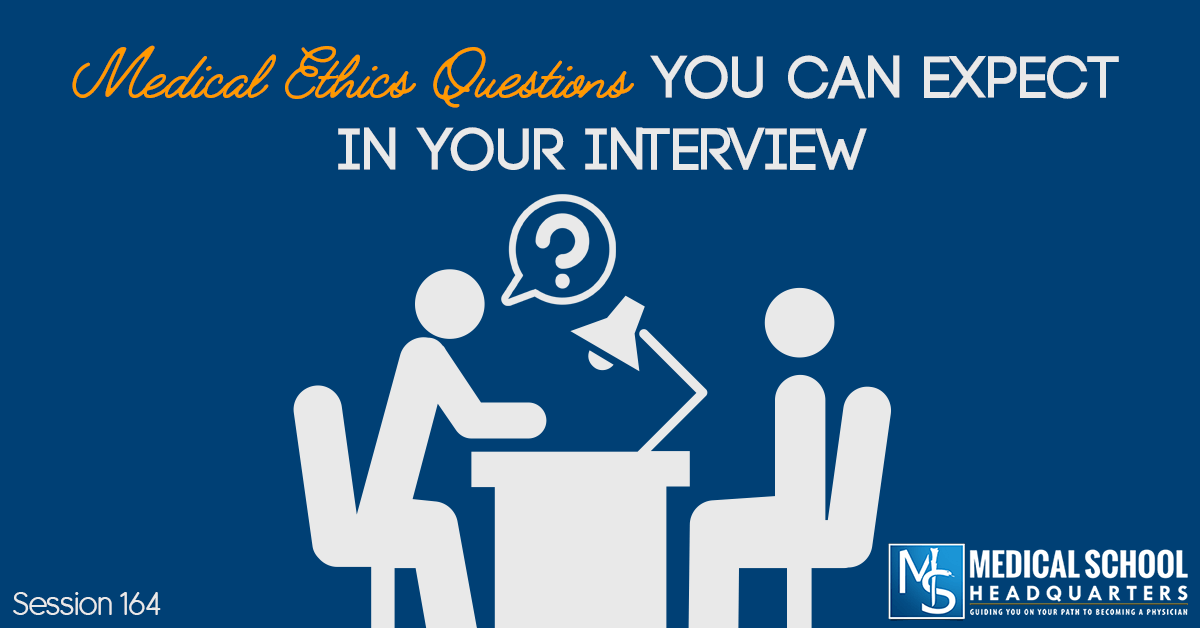
Medical Ethics Questions You Can Expect In Your Interview

The MMI: Everything You Need to Know About the Multiple Mini Interview
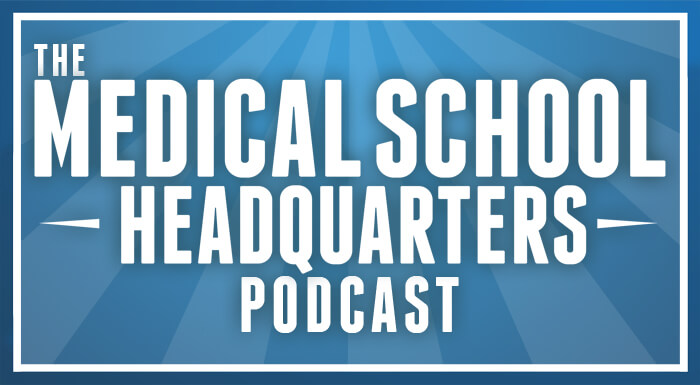
Common Medical School Interview Mistakes and How to Fix Them

© Medical School Headquarters - All Rights Reserved. | Affiliate Disclaimer | Privacy Policy | Website by MAP

Pennsylvania State University Secondary Essay Prompts
These are the secondary application essay prompts for Pennsylvania State University College of Medicine. To put your best foot forward and maximize your chance of an interview invitation, visit our secondary application editing page .
about Pennsylvania State University College of Medicine
Secondary Deadline : December 15, 2023 Secondary Fee : $90 FAP Waiver : Full Fee Waived CASPer Required : Yes Screens Applications : No Accepts Application Updates : No
The College of Medicine (and our academic hub, Penn State Health Milton S. Hershey Medical Center) are committed to enhancing the quality of life through improved health, the professional preparation of those who will serve the health needs of others, and the discovery of knowledge that will benefit all.
The College of Medicine’s vision is to improve health through our missions of education, research, patient care and community health. While research and education are distinct lines of endeavor from patient care services, the academic and clinical enterprises work synergistically to advance the unified purpose of improving health. The College of Medicine strategic plan reflects this reality, and contains goals and initiatives that seek to advance research and education while leveraging the clinical strengths of Penn State Health.
The College of Medicine is committed to R.I.T.E values: respect, integrity, teamwork and excellence. It strives to promote a respectful work and learning environment, characterized by collaborative and shared-credit behaviors, to embrace diverse backgrounds, talents, and perspectives, and to act in a compassionate, thoughtful, considerate and kind manner. The College values integrity, encouraging persistent best efforts, moral courage to ask hard questions, and fair treatment of others. It supports teamwork and the underlying values of sharing and trust, with the goal of ensuring the best experience for co-workers, patients, and trainees. Finally, the College of Medicine pursues excellence by aligning individual performance with the mission, vision, values, and strategic imperatives and a solution-focused culture.
1. If not currently enrolled in a full-time academic program, please summate your activities from the time of graduation from your baccalaureate program through the time of this application, as well as your plans between now and your matriculation to medical school. (Maximum 75 words)
2. Is there a unique aspect of your application that should be considered by the admissions committee? (Maximum 75 words)
3. Explain why you decided to apply to Penn State College of Medicine. (Maximum 75 words)
4. Please write a short paragraph describing a significant experience you have had working in a team setting. (Maximum 250 words)
5. Write a short statement describing how you envision using your medical education to advance care for under-represented or marginalized populations. (Maximum 250 words)
1. Is there a unique aspect of your application that should be considered by the admissions committee (Maximum 75 words)
2. Explain why you decided to apply to the Penn State College of Medicine (Maximum 75 words)
3. Write a short paragraph describing a significant experience you have had working in a team setting (Maximum 250 words)
4. Write a short statement describing how you envision using your medical education to advance care for under-represented or marginalized populations. (Maximum 250 words)
1. Is there a unique aspect of your application that should be considered by the admissions committee? (Maximum 75 words)
2. Explain why you decided to apply to Penn State College of Medicine. (Maximum 75 words)
3. Please write a short paragraph describing a significant experience you have had working in a team setting. (Maximum 250 words)
4. Briefly describe an experience where you had to navigate a complex system (e.g. personal experience, group activity, or development of a project) to achieve an end. Reflect on the qualities and attributes required by you to achieve success in this experience. (Maximum 250 words)
The secondary application essay prompts from this medical school application cycle are the same as above.
Disclaimer: The information on this page was shared by students and/or can be found on the medical school’s website. Med School Insiders does not guarantee the accuracy of the information on this page.

We're here to help
The secondary application is just as important as the primary. We'll make sure you get it right.

Join the Insider Newsletter
Receive regular exclusive MSI content, news, and updates! No spam. One-click unsubscribe.
Customer Note Premed Preclinical Med Student Clinical Med Student
You have Successfully Subscribed!

- Secondary Essay Prompts
Secondary Essay Prompts – Pennsylvania State University College of Medicine
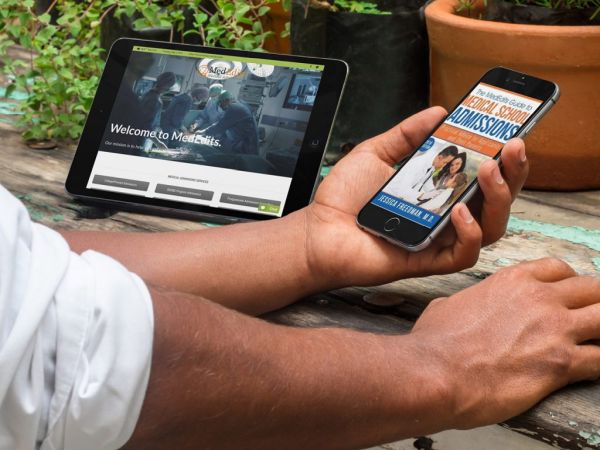
Secondary Essay Prompts for the Pennsylvania State University College of Medicine
Below are the secondary essay prompts for the Pennsylvania State University College of Medicine in Hershey, PA.
2019 – 2020
- Is there a unique aspect of your application that should be considered by the admissions committee? (Maximum 75 words)
- Explain why you decided to apply to the Penn State College of Medicine. (Maximum 75 words)
- Write a short paragraph describing a significant experience you have had working in a team setting. (Maximum 250 words)
- Write a short statement describing how you envision using your medical education to advance care for under-represented or marginalized populations. (Maximum 250 words)
- University Park Program, If yes, please briefly describe (maximum 250 words) a past experience where you were immersed in a situation in which you needed to adapt, collaborate, and grow as an individual and a team member in order to succeed.
2016 – 2017
- Explain why you decided to apply to Penn State College of Medicine. (Maximum 75 words)
- Please write a short paragraph describing a significant experience you have had working in a team setting. (Maximum 250 words)
- Briefly describe an experience where you had to navigate a complex system (e.g. personal experience, group activity, or development of a project) to achieve an end.
- Reflect on the qualities and attributes required by you to achieve success in this experience. (Maximum 250 words)
Secondary essay webcast with Dr. Jessica Freedman, founder and president of MedEdits Medical Admissions. Read more about Dr. Freedman.

Pennsylvania State University College of Medicine
Topics covered in this presentation:
- When should I submit my secondary essays?
- Pay attention to the word/character limits.
- Can I recycle secondary essay prompts for multiple schools?
- Identify topics that you left out of your primary application.
- And, much more.
Below are the secondary essay prompts for the Pennsylvania State University College of Medicine.
2017 – 2018.
- The Pennsylvania State University College of Medicine strives to ensure that its students become respectful physicians who embrace all dimensions of caring for the whole person. Please describe how your personal characteristics or life experiences will contribute to the Pennsylvania State University College of Medicine community and bring educational benefits to our student body. (1000 characters)
- Is there any further information that you would like the Committee on Admissions to be aware of when reviewing your file that you were not able to notate in another section of this or the AMCAS Application? (1000 characters)
- Why have you chosen to apply to the Pennsylvania State University College of Medicine and how do you think your education at Pennsylvania State University College of Medicine will prepare you to become a physician for the future? (1 page, formatted at your discretion, upload as PDF)
Pennsylvania State University College of Medicine Admissions Requirements
Learn more about this school:
Secondary Essay Prompts for Other Schools
Do you want to see secondary essay prompts for other medical schools?
Select a school below:
[interactive_map id=”6″]
Secondary Essay Prompts By School
*Data collected from MSAR 2022-2023, 2022 Osteopathic Medical College Information Book, and institution website.
Disclaimer: The information on this page was shared by students and/or can be found on each medical school’s website. MedEdits does not guarantee it’s accuracy or authenticity.
RELATED ARTICLES MORE FROM AUTHOR

Secondary Essay Prompts – Baylor College of Medicine

Secondary Essay Prompts – University of California, San Francisco, School of Medicine

Secondary Essay Prompts – University of Miami Leonard M. Miller School of Medicine

Secondary Essay Prompts – Columbia University Vagelos College of Physicians and Surgeons

Secondary Essay Prompts – Mayo Medical School, Rochester, MN
Leave a reply cancel reply.
Save my name, email, and website in this browser for the next time I comment.
- Website Disclaimer
- Terms and Conditions
- MedEdits Privacy Policy

Pennsylvania State University College of Medicine Secondary Essay Prompts
Below are the secondary prompts for Pennsylvania State University College of Medicine. Want to maximize your chances for an interview invite? Work with our expert medical school admission consultants to put your best foot forward through our secondary application editing services .
1. Is there a unique aspect of your application that should be considered by the admissions committee? (Maximum 75 words)
2. Explain why you decided to apply to the Penn State College of Medicine. (Maximum 75 words)
3. Write a short paragraph describing a significant experience you have had working in a team setting. (Maximum 250 words)
4. Write a short statement describing how you envision using your medical education to advance care for under-represented or marginalized populations. (Maximum 250 words)
What are your chances of acceptance?
Calculate for all schools, your chance of acceptance.
Your chancing factors
Extracurriculars.
How to Write the Penn State Supplemental Essays 2023-2024

Penn State has one, optional supplemental essay prompt for all applicants, which is essentially a personal statement. Applicants to Penn State’s Schreyer Honors College, or Accelerated Pre-Med program, will also have to respond to a fairly extensive list of supplemental prompts—2 essays and 8 short answers for the Honors College, and 4 essays for the BS/MD program.
Regardless of whether you are just applying to Penn State as a whole, or to one of these more specialized programs, you want your essays to shine. In this post, we’ll break down each prompt, so you’re prepared to write a strong, engaging response to each prompt.
Read these Penn State essay examples to inspire your writing.
Penn State Supplemental Essay Prompts
All applicants.
Prompt: Please tell us something about yourself, your experiences, or activities that you believe would reflect positively on your ability to succeed at Penn State. This is your opportunity to tell us something about yourself that is not already reflected in your application or academic records. (500 words, optional)
Schreyer Honors College Applicants
Prompt 1: Describe a problem you’ve solved or a problem you’d like to solve. It can be an intellectual challenge, a research query, an ethical dilemma – anything that is of personal importance, no matter the scale. Explain its significance to you and what steps you took or could take to identify a solution. (800 words)
Prompt 2: Isaac Asimov wrote: “Any book worth banning is a book worth reading.” Do you agree? Is such censorship ever justified? If not, explain why. If so, who or what should determine which books are read and which books are forbidden. (800 words)
Short Answers
Prompt 1: What do you hope to get at Penn State as a Schreyer Scholar to help you accomplish your future goals and aspirations? (200 words)
Prompt 2: If you were able to go anywhere in the world, outside of the country you currently reside, where would you go and why? (200 words)
Prompt 3: Tell us about your leadership experiences (community roles, family contributions, research, clubs, organizations, etc.) and why leadership is important to you. Describe the challenges and/or successes you’ve faced in these roles. (200 words)
Prompt 4: List awards or other recognitions you have received in or outside of school over the last 4 years. Which award or recognition means the most to you and why? (200 words)
Prompt 5: Tell us about a book or other media that has made you think about something in a new way. (200 words)
Prompt 6: Consider a time when you had to collaborate with individuals from diverse backgrounds or with different perspectives. How did this experience contribute to your personal growth and understanding of others? (200 words)
Prompt 7: Everyone belongs to many different communities and/or groups, including: shared geography, faith, ethnicity, income, cuisine, interest, race, or intellectual heritage. Choose one of the communities or groups to which you belong and describe how it has influenced your life over the last four years. (200 words)
Prompt 8: Please use this space to share information you would like us to consider that has not been discussed elsewhere in your Schreyer Honors College application. This could include obstacles you’ve overcome, something you’re proud of that is not discussed elsewhere, or anything else you choose. (200 words)
Accelerated Premedical-Medical Program (BS/MD) Applicants
Prompt 1: Describe one non-academic activity during your high school years that has been the most meaningful to you. (250 words)
Prompt 2: Write a personal statement indicating why you want to be a physician, why you want an accelerated program and why you’ve selected this Penn State/Kimmel program. (500 words)
Prompt 3: Describe what you think your strongest qualities are as well as weaknesses that you would like to improve upon. (250 words)
Prompt 4: Tell us about a time you were unsuccessful and how you grew from this experience. (500 words)
Please tell us something about yourself, your experiences, or activities that you believe would reflect positively on your ability to succeed at Penn State. This is your opportunity to tell us something about yourself that is not already reflected in your application or academic records. (500 words, optional)
While this essay is technically optional, we still strongly encourage all applicants to complete it. Writing an optional essay provides admissions officers with more information about you, helps your application stand out, and further expresses your interest in the college you are applying to.
One of your main objectives in all college essays should be to depict yourself as a strong addition to a specific college’s community. A good response will contain a reflection on your experiences to demonstrate a specific personal quality that you think will set you up for success at Penn State. To brainstorm, ask yourself: What do I need to succeed at Penn State? What are my strengths?
You’ll need to think of examples that demonstrate the traits that will set you up for college success. Though the prompt says that you can pick “something about yourself, your experiences, or activities,” your choice should be something that you can show through a story or anecdote.
Almost any poor topic can be strengthened if you make it more specific:
Don’t pick something too broad, like “I have formed many friendships in different settings.” However, you could write a detailed account of a specific friendship or friend group you formed after switching high schools, explaining how you developed the skills to not only survive, but thrive in a new social community. Then, you can discuss how, at any college, but especially a big school like Penn State, forming a social network is crucial for academics (study groups, peers to help with homework, collaborators for group projects, etc.) and for making the most of your college experience.
Avoid focusing on an experience that virtually all applicants will share. “I made it through high school” is not a strong response. However, you could write about an illness you faced that almost jeopardized your ability to succeed in school. Through detailed storytelling, you could show the reader that you developed time-management skills and perseverance, which, as you can guess, are absolutely crucial for college success.
Great responses to this prompt can be quite personal since more formal academic and extracurricular activities might already be covered in your application. For example, you could relate difficult family or friendship situations you’ve negotiated to your ability to navigate a diverse and complex college community.
Regardless of which aspect of your identity, experience, or activity you pick, be absolutely sure to avoid generalizing. Many students write a 500 word essay that never uses specific examples. While these essays might sound smooth, they are almost entirely composed of clichés and generalizations. Here’s an example so you can get a better idea of what we’re talking about.
A student could write something like:
“I have volunteered for over five years at my local food pantry. This experience has made me more appreciative of what I have, and more determined to give back. I know I’ll take these values with me to Penn State.”
Note that these sentences do not refer to a specific instance or give concrete examples. They give a general description of one activity and then make generic, high-level assertions about the results of that activity.
A strong essay will push beyond this level of resolution:
- Describe what you did at the food pantry.
- Show the perspective this has given you by giving an example of how you changed your daily activities or interactions with others as a result of this experience.
- Link these changes to success in college by discussing how you’ll dive into volunteer opportunities and community organizations. Use specific examples of clubs or organizations at Penn State, such as the Lion’s Pantry, which is dedicated to addressing student hunger.
A few words of caution: Some students will have too many things they want to squeeze into this essay. While you may feel like you’ve just left so many crucial details out of your application, you should resist the temptation to use this essay as a “catch-all” for everything “not already reflected in your application.” Note that the prompt asks you to share “something” not already included—not everything! This essay should be focused and cohesive, telling a story that proves you can succeed in college.
If you truly feel that important information has been left out of your application, try to incorporate it into your Activities Section, other essays, or, if all else fails, the Additional Information section of the Common App.
Schreyer Honors College Applicants, Essay Prompt 1
Describe a problem you’ve solved or a problem you’d like to solve. it can be an intellectual challenge, a research query, an ethical dilemma – anything that is of personal importance, no matter the scale. explain its significance to you and what steps you took or could take to identify a solution. (800 words).
Brainstorming Your Topic:
Given the length and nature of this prompt, taking the time to select a strong topic is especially important. You need to pick a topic that is nuanced enough to sustain 800 words, but also personal enough that you can answer each part of the prompt while also highlighting aspects of your personality that make you a strong fit for the Honors College.
Fortunately, the prompt’s criteria are pretty open-ended, and admissions officers go out of their way to say the scale of the issue doesn’t matter. So, to brainstorm, we recommend asking yourself open-ended questions, like:
- Which societal issues are particularly important to you?
- Are there any more local issues (at your high school or in your city, for example) that have a big impact on your life?
- Is there a problem you’ve already taken steps to solve?
Once you’ve identified a topic, you want to take a moment to think about your personal connection to it, to make sure it’s a good match for this prompt.
For example, if you want to write about your weekly beach cleanups, but you only do them because your dad makes you, you should probably keep brainstorming. However, if you started doing them after completing a research project in your junior year chemistry class on how microplastics have impacted the local fish population, this topic would be perfect!
Tips for Writing Your Essay:
Seeing as you have plenty of words at your disposal, you want to make sure you’re thorough in describing the problem, its significance to you, and your ideas about how to solve it. To do so, you want to make sure that, like any college essay, your points are grounded in specific, personal anecdotes, as otherwise the essay may read as preachy or generic.
For example, compare the following excerpts from a hypothetical essay:
Excerpt 1: “To clean up the oceans, everyone needs to get involved. It might not feel like picking up one plastic bottle will make a difference, when there are beaches all over the world covered in trash. But if we all picked up every bottle we see, all those small actions would eventually start to add up.”
Excerpt 2: “Every summer, my family spends a week on the Oregon coast. My mom used to drive me crazy when she would interrupt my tanning session to nag me about picking up plastic bottles, empty chip bags, and forgotten toy shovels. ‘Why should I have to pick up someone else’s trash? Besides, what’s the point—there’s always more coming,’ I used to think. But then, one Saturday she dragged me along to a community beach cleanup. 200 people spent the entire day combing through the sand for even the smallest pieces of plastic, and by the time the sun set, I wasn’t even thinking about how sweaty or dirty I was. All I cared about was how pristine the white sand looked, stretching away into the distance, clean and unmarked by bright plastic.”
At their cores, these two examples are making the same point. But the first one lacks the personal details that show how the writer arrived at these realizations, and thus the takeaways read as generic, and won’t do anything to distinguish them from other qualified applicants.
The second one, on the other hand, tells us exactly what happened in the writer’s past that changed their mindset about the importance of individual action. Remember that, like with any college essay, the point of this essay is to teach your readers about who you are. So, your discussion of the problem you choose should be grounded not in scientific studies or big-picture ideas, but in the experiences you have had that have shaped not only your thoughts on this issue, but your personality as a whole.
Obviously, the second example is much longer, but, as noted above, this is one of the rare supplemental essays where space likely won’t be an issue. You have the room to provide the personal details admissions officers are looking for, so take advantage of it!
Mistakes to Avoid:
The most important pitfall to avoid has already been outlined above: make sure your essay doesn’t become too much about the problem, at the expense of teaching your readers about important aspects of your personality. You probably have much more experience with academic writing than reflective writing, so as you write and revise your first draft, make sure there aren’t any points where you instinctively slip into research-based, argumentative mode.
Schreyer Honors College Applicants, Essay Prompt 2
Isaac asimov wrote: “any book worth banning is a book worth reading.” do you agree is such censorship ever justified if not, explain why. if so, who or what should determine which books are read and which books are forbidden. (800 words).
When you sit down to start writing your response, the first thing you want to do is honestly ask yourself whether or not you agree with Asimov. Censorship is a hot topic in the news right now, so you may already have at least a partially-formed opinion. But in order to write a strong response, you need to be fully authentic. So, before you start writing, you want to spend some time really thinking about how you feel about this issue, and why.
It’s also important to note that you shouldn’t just say what you think your readers will want to hear. If your response is thoughtful and reflects a high level of critical thinking, you can argue in favor of either side of the debate.
Once you’ve decided what position you’re taking, you’ll need to work on fleshing out your justification for it. This justification needs to be more sophisticated than just “I believe in free speech, so no books should be banned,” or “I believe some books provoke dangerous ideas, like those of Nazi Germany, and so banning can sometimes be justified.” In college, particularly at an honors college, you’re going to be wrestling with difficult questions like this one every day, so you want to show admissions officers that you appreciate the nuance of this debate.
For example, a rough outline of a strong response might look something like this:
- Introduction: Provide a personal anecdote that shows the importance of books in your own life, and use that to introduce your perspective that banning books is never justified
- Point 1: Describe a situation, either from your own life or history, where the free exchange of information was essential to progress
- Point 2: Highlight the role books play in allowing not only the exchange of existing ideas, but also the introduction of new ones, by focusing on a text that moved a particular discussion forward in a substantial way
- Point 3: Acknowledge that some books do contain ideas you feel are dangerous, but argue that those dangerous ideas need to be acknowledged, lest they manifest in tangible ways, and that even labeling certain ideas as “dangerous” is dicey, because some people would call ideas that are fundamental to your worldview “dangerous”
Pay special attention to Point 3: acknowledging that the other position has merit, and then explaining why your position is still the better choice, is something you’re going to be asked to do frequently in college. Showing admissions officers that you’re already able to think at that level can take your essay from good to great.
Finally, this prompt is more academic than most other supplements out there, but you still want to draw on your own experiences in your response. Otherwise, the tone of your essay may end up rather dry, and while that isn’t a death sentence, you do ideally want your reader to be genuinely invested in your essay, and incorporating anecdotes from your own life will help build that investment.
The #1 thing you want to avoid in your response is offending your reader, even unintentionally. As noted above, the admissions officers are intentionally asking you a question with no clear answer—they want to see that you can address such a question in a tactful, respectful way. Coming across as defensive, argumentative, or ignorant won’t say anything good about your ability to contribute to high-level college discussions.
For example, you wouldn’t want to say “The only people who I’ve heard argue in favor of banning books are my aunt and uncle, who also believe a lot of other absurd things, like that Elvis is still alive, so I’ve never seen much merit in that position.” Obviously, we’ve given an extreme example to illustrate our point. But on a more realistic level, you want to keep your essay focused on yourself and your opinion, rather than speaking down on anyone else.
Schreyer Honors College Applicants, Short Answer Prompt 1
What do you hope to get at penn state as a schreyer scholar to help you accomplish your future goals and aspirations (200 words).
This is essentially a “Why This College?” prompt, but focused on Penn State’s Honors College specifically, rather than a college as a whole. The keys to writing a strong response are essentially the same, however: identify specific resources that can only be found at Schreyer Honors College (not things that you could also take advantage of as any other Penn State student!), and explain how those resources align with your goals for college and beyond.
For example, you might choose to highlight Schreyer’s goal that all Schreyer Scholars have at least one experience abroad by the time they graduate as something that is particularly attractive to you, as you are interested in international relations and thus hope to familiarize yourself with other cultures as much as possible during college.
Alternatively, you might talk about how you’re excited by the thought of living in Atherton or Simmons, one of Penn State’s two honors housing residence halls, because you hope to attend law school after college, and so the more practice you can get with lively, intellectual debates, the better.
The only thing you really want to avoid in your response is general or superficial reasons for wanting to attend Schreyer, that don’t do much to help your readers envision you as a Schreyer Scholar. For example, you don’t want to talk about the prestige of the program, or the fact that Atherton and Simmons have prime locations on campus. Admissions officers want to accept applicants who are ready to hit the ground running, and the more specific you can be in spelling out how Schreyer will help you achieve your goals, the more confident they will be in your readiness.
Schreyer Honors College Applicants, Short Answer Prompt 2
If you were able to go anywhere in the world, outside of the country you currently reside, where would you go and why (200 words).
This prompt is a more-lighthearted question that just wants a sense of your personality – are you more adventurous or more restrained? Are you more interested in culture and history or relaxation and some peace and quiet? Your answer says more than you may think about what kind of person – but there’s no right or wrong answer here. Like many of the questions before it, you’ll want to answer both honestly and in a manner that showcases your true personality. Your answer should be as unique as you can think of, but as usual, the more personal a connection to your answer the better.
For example, maybe you’re the first-generation child of immigrants from India but have never been back there yourself. You could write about how a trip to India would reconnect you with your family roots, your culture, and the pasts of your parents.
If you don’t feel like you have a special story or experience to share, however, don’t worry. Your answer will be strong so long as it is unique to you, so brainstorm a place or country that would be at the top of your bucket list. Maybe you’re an avid hiker and want to take a crack at Mount Kilimanjaro. You can write about how visiting and climbing the mountain has always been a dream of yours that you hope to have the resources to achieve later on in life. Write about what hiking means to you and why, as well as why Mount Kilimanjaro is the end goal.
Schreyer Honors College Applicants, Short Answer Prompt 3
Tell us about your leadership experiences (community roles, family contributions, research, clubs, organizations, etc.) and why leadership is important to you. describe the challenges and/or successes you’ve faced in these roles. (200 words).
Although this prompt asks you to discuss your “leadership experiences,” plural, in reality you want to keep your focus pretty narrow, since you only have 200 words to provide the elaboration they’re asking for. You can start off with a general overview of the leadership positions you’ve held, but you pretty quickly want to zoom in on an anecdote or two that show what you’ve learned about leadership from these experiences.
For example, the start of your essay might look something like this:
“I’ve been fortunate to hold a variety of leadership positions throughout high school, from two-time captain of my volleyball team, to assistant manager of the Chipotle down the street from my house, to, as the oldest of seven children, first mate on our family’s sailing ship. But the moment that taught me the most about leadership was one in which I failed: my team had a tournament starting at 8 am, and I never woke up, as I’d accidentally set my alarm for 6:30 p.m., not a.m.”
From here, the writer can dive into a discussion of how, while many people see confidence and inspiration as the most important traits a leader can have, their experience showed them that accountability is just as crucial. And because that point is grounded in an anecdote from their own life, we know exactly why they feel this way–without that specificity, your essay will likely come across as generic or even preachy.
Schreyer Honors College Applicants, Short Answer Prompt 4
List awards or other recognitions you have received in or outside of school over the last 4 years. which award or recognition means the most to you and why (200 words).
This prompt is a great opportunity for you to paint a better picture of yourself and your accomplishments, both academic and otherwise. After listing all of your awards and recognitions, there are two main ways you can approach this question—you can highlight an honor or distinction you have received for an academic or extracurricular achievement, or you can flex your creative muscles and expand on a smaller award or appreciation you have received.
For example, if you have been recognized for your success in an extracurricular activity with a competitive element like debate, Model UN, or robotics, you can explain the activity’s importance to you, and what the process of winning meant to you. You could also take this approach if you have won your school’s talent show, or received a ribbon in a local photography contest. Alternatively, you could talk about being voted captain of your cross country team, or awarded the lead role in your school’s musical theater production, and describe how you handled that responsibility.
However, if you lack any formal awards, try to think of any informal recognitions you have received over the years – a superlative in the yearbook, a counselor of the summer award at a sleepaway camp, even a “Best Cousin Ever!” sticker your 5-year-old cousin gave you last Thanksgiving. While you may feel awkward writing about something not conventionally “impressive,” this approach can actually show a high level of maturity. College applications are by definition pretty braggy, so showing admissions officers that you have an appreciation for “the little things” in life can, perhaps counterintuitively, help set you apart from other applicants who may have written about more traditional, resume-y achievements.
Schreyer Honors College Applicants, Short Answer Prompt 5
Tell us about a book or other media that has made you think about something in a new way. (200 words).
Think about something that you’ve read, watched, or listened to that has stuck with you or impacted you personally. This isn’t meant to be an opportunity for you to recant your love for Shakespeare or your appreciation for Charles Dickens, although you certainly can if it’s deeply resonated with you. And that’s the key – you want to be genuine with your answer. You can go on and on about how much you admire an author or filmmaker’s style or craft – but what the admissions reader really wants to know is how a piece of media has changed your perspective and impacted you personally.
Is there a movie that you can endlessly rewatch? A book you always find yourself going back to? A podcast or an album you can’t stop listening to? The trick is to do some reflection into the “why” – media above anything else has a strictly personal connection to your mind, so see if you can figure out what about the connection to your selected media is so special. If you’re stumped, do a bit of journaling, either while participating with your chosen media or afterward, and write down how it makes you feel and what it makes you think about. Chances are you’ll be able to uncover what it means to you and how it affects you.
Perhaps your mother’s favorite movie is the musical West Side Story, and you and her went to see the Steven Spielberg remake together. Maybe she has a special connection with the musical because she’s originally from Puerto Rican – you could write about how sharing that experience with your mom got you in touch with your heritage and your roots, and got you to reevaluate what it means to be a Puerto Rican in the America of today.
Everyone has a different story, and it is tapping into that story and how it relates to your media choice that should be the basis of your response here.
Schreyer Honors College Applicants, Short Answer Prompt 6
Consider a time when you had to collaborate with individuals from diverse backgrounds or with different perspectives. how did this experience contribute to your personal growth and understanding of others (200 words).
This prompt very considerately spells out pretty much exactly what you need to do: describe a time when you collaborated with a diverse group of people, and explain why that experience was significant to your personal growth/understanding of others. One important thing to keep in mind is that, as you think about which experience you want to focus on, the phrases “diverse backgrounds” and “different perspectives” can be read in a variety of ways.
For example, you could write about your last Thanksgiving dinner, and focus on the wide range of ages present at the table, from your 97-year-old grandmother to your infant cousin. You could then talk about how this experience showed you that, if people really want to, we can always get along: we go out of our way to be polite and respectful towards family, even when we don’t particularly want to, but there’s no reason we couldn’t do the same for others.
Alternatively, you could write about your part-time job at a ski lodge, where your coworkers came from all over the state, and some were much stronger skiers than others. You could use this experience as an avenue into talking about how if everyone has a shared goal, and is willing to contribute whatever they’re able in pursuit of that goal, having different skill sets actually becomes an asset, as each person’s strengths balance out someone else’s weaknesses.
Schreyer Honors College Applicants, Short Answer Prompt 7
Everyone belongs to many different communities and/or groups, including: shared geography, faith, ethnicity, income, cuisine, interest, race, or intellectual heritage. choose one of the communities or groups to which you belong and describe how it has influenced your life over the last four years. (200 words).
This is an example of the classic “Diversity” prompt, so you have two main goals in your response: highlight some aspect of your identity, and explain how that part of you has shaped your personality as a whole. If you just say “I lived in Italy from age 8 to age 14” or “I come from a family where we don’t bleed red, but green, for the Philadelphia Eagles,” but don’t explain what you’ve learned from these experiences, your reader won’t actually understand you any better.
Instead, like always, you want to include a specific anecdote or two that highlight some personality trait, or part of your worldview, that you wouldn’t have if you weren’t a part of this community. Take the Eagles example above. Later in the essay, you might say something like:
“This fandom has helped me connect with family members who I otherwise might not know. Like my grandpa, who has been suffering with dementia since before I was born. He’s unable to ask me about my classes or my lacrosse team, but when we watch the Birds together, I feel like we’re having a conversation all our own. Some things are better said without words.”
In this excerpt, the student doesn’t just list a community they’re a part of, but also shows us why that community is so important to them.
Finally, note that the prompt gives a broad definition of “community.” Hopefully, our two examples also help emphasize that you don’t need to write about any one particular thing. If your race has been a huge part of shaping your identity, then you should of course write about it! But you can also write a strong essay about any community you’ve been a part of, even ones that may seem a little unconventional.
Schreyer Honors College Applicants, Short Answer Prompt 8
Please use this space to share information you would like us to consider that has not been discussed elsewhere in your schreyer honors college application. this could include obstacles you’ve overcome, something you’re proud of that is not discussed elsewhere, or anything else you choose. (200 words).
This prompt is the last opportunity for you to fill in any gaps left over in your application to the Schreyer Honors College. Look over your application and all your previous responses and reflect on if there’s anything still left unsaid. Remember, the admissions reader wants the clearest picture of you as they can possibly get, and the more information you can provide them about yourself the better.
Here are some examples of details you may wish to write about here:
- Unusual circumstances or hardships (financial hardships, first-generation status, illness, tragedy, etc.)
- Family responsibilities that may have prevented students from taking traditional extracurriculars
- Unique extracurricular that wasn’t written about in another part of the application outside of the Activities Section
- Describing your identity in the context of race, gender, or LGBTQ+
This prompt is going to be on an extremely case-by-case basis, so do what feels right for you and remember that you don’t have to embellish anything about yourself or your life in an attempt to make it sound more interesting to an admissions reader. They really just want to get to know you as your authentic self, so make sure that you’re answering this prompt in a manner that is genuine and honest.
Accelerated Premedical-Medical Program (BS/MD) Applicants, Prompt 1
Describe one non-academic activity during your high school years that has been the most meaningful to you. (250 words).
This prompt is the classic Extracurricular Activity essay . Remember that the admissions committee already has a list of your extracurricular activities, so make sure you’re delving beyond a simple list of your responsibilities. You’ll want to share your emotions and thoughts as you participate in this activity, as well as how it’s impacted you.
As you choose your activity, consider which qualities you’ve already demonstrated in your application, and which ones you’d like to highlight more. If you’ve already written about one activity in your Common App essay, there’s no need to repeat it here. Or, maybe your Common App essay demonstrates resilience when you also consider yourself a very ambitious person. Then, you might want to pick an activity that highlights your ambition.
If you’ve had any jobs or internships in the medical field, this is your opportunity to expand on your experience and what it may have taught you. However, the key to this prompt is to choose something that was the most meaningful to you. Don’t feel like you have to choose an extracurricular in medicine just because you’re applying to a BS/MD program.
Once you’ve chosen an activity to write about, reflect on how it has shaped who you are. This is extremely important, as a common mistake with this prompt is to focus too much on the activity itself without explaining the “why” behind its importance. What lessons has the activity taught you? What skills did you learn? Why has this activity kept you engaged or kept you motivated? These are just a few of the questions that can guide your answer.
Accelerated Premedical-Medical Program (BS/MD) Applicants, Prompt 2
Write a personal statement indicating why you want to be a physician, why you want an accelerated program and why you’ve selected this penn state/kimmel program. (500 words).
As you are probably aware already, the Penn State-Kimmel program is a highly rigorous seven-year program that will require you to commit to a career in medicine. It is not a fast track to becoming a doctor, but rather a set path to reaching that goal. Keeping that in mind, this prompt should be somewhat easy to answer. It is simply a space asking you to explain why you are interested in medicine and the program specifically, which means your answer will be best the more it sounds like you.
Brainstorming a list of reasons why you want to become a physician will be a great starting point – there will likely be several things that draw you to this career path, so list as many you can think of and use that as a jumping-off point. Some questions that can get you thinking may include:
- What was the first experience that made you think about medicine as a career?
- Are there any subjects in school that gave you an interest in medicine? What about extracurriculars?
- What do you hope to do as a physician? Any specific field you would like to work in?
- Are there any personal experiences that you have that make you want to be a physician?
Of course, there are dozens of other questions that you can ask yourself to get a solid foundation for this prompt, but the point is to Jeopardy-style your way into an answer. Ask yourself a series of questions and see what answers you come up with!
Once you describe your reasons for pursuing medicine, you can move forward to the next two parts of the prompts, which are more or less the same question – why this accelerated program?
When it comes to explaining your interest in an accelerated program, the admissions committee has likely heard it all: guaranteed admission to medical school, getting your MD sooner, etc. But what will these benefits do for you specifically? What will you do with the extra time you’ll have from not needing to apply for medical school, or being able to graduate early? Maybe you have a specific clinic you want to spend a lot of time in, or perhaps you want to serve patients in countries impacted by climate change, which will only get more urgent over the next several years. Dig deeper beyond the obvious benefits of an accelerated program.
Finally, you want to explain why the Penn State-Kimmel Program is right for you. How will it help you achieve your specific goals? This will require you to do a fair amount of research on the program and the Sidney Kimmel Medical College. Look into the specific courses, research opportunities, statements from alumni, and more.
For example, maybe you want to help develop immunotherapies for cancer after your aunt received an experimental treatment that worked wonders. You could express interest in contributing to the Immune Cell Regulation & Targeting Research Program at Jefferson Health (the home of the Sidney Kimmel Medical College). Or, maybe you want to conduct research on the social determinants of health as a Black woman, particularly when it comes to race. Since Philly (where the Kimmel Medical College is located) is 40% Black, the city would be a good setting for your research.
A large thing to keep in mind is that this program is a 7-year commitment to getting an MD, so you’ll want to frame your answer around how you’ve wanted to be a doctor for a large part of your life. The questions you ask yourself and the information you find on the website will not only help you with this prompt, but also help you figure out if this program is right for you!
Accelerated Premedical-Medical Program (BS/MD) Applicants, Prompt 3
Describe what you think your strongest qualities are as well as weaknesses that you would like to improve upon. (250 words).
This is a common question not only in college applications, but also career interviews, so your answer to this question may even prove helpful down the road!
This prompt is more straightforward, so you can simply discuss a few strengths and weaknesses. Given the word count, we recommend sticking to 1-2 each. Try to follow them up with examples of times you demonstrated those qualities.
If your strengths relate to medicine, that’s all the better! But no need to explain how these qualities will benefit you in medicine. The connection can be implicit, as doctors need many soft skills.
For example, maybe one of your key skills is that you’re very organized – you could explain how you managed seven different committees as Student Body President, and how you kept track of their progress by having them use a color-coded Google Sheet. The implicit connection to medicine is that being a physician requires you to keep tabs on a plethora of patients and follow-up on their changing needs.
When you get to the weakness part of the question, remember that this prompt is meant to get you thinking about what you believe you can improve upon. For instance, you don’t want to write that you’re not a people person. Not only is this an aspect of your personality that may be difficult to change, but it is also an essential component of becoming a physician.
Think about weaknesses that you can work on – for example, maybe you have trouble with criticism and take it personally because you’re very proud of the work you do. But, you also recognize how important it is in improving your work. So, you’ve already started actively seeking out criticism, such as submitting your artwork to art feedback Discord servers.
Your answer to these questions will give the admissions reader a sense of your work style and will help evaluate if you are a good fit for the requirements of the program, so remember to frame your answer with that in mind.
Accelerated Premedical-Medical Program (BS/MD) Applicants, Prompt 4
Tell us about a time you were unsuccessful and how you grew from this experience. (500 words).
Speaking of questions that you’ll likely get in job interviews, this is another classic. This prompt will get you reflecting on any experience, both in and out of the classroom, where you had some sort of shortcoming, and how you applied that knowledge to future endeavors.
Admissions readers know that in a program like this one, you’re bound to fail at one point or another – they just want to see that you know how to grow from your mistakes. There are a plethora of examples you could probably choose from, but the best one will be the most personal to you.
Keep in mind that your topic doesn’t need to be medicine-related. The point of this prompt is simply to see how you pick yourself up after a failure. You don’t even need to have succeeded in the end; what’s important is that you show what you learned.
This prompt falls under the Overcoming Challenges essay archetype, so we encourage you to read our full guide on that.
Roughly 50% of the essay should describe the process of overcoming the challenge. In this portion of the essay, you should lay out the basics of the challenge, discuss the steps you took to overcome it, and any final accomplishment that illustrates what you’ve overcome.
The remaining 50% of the content (spread throughout the overall narrative) should cover your state of mind, your emotional state, and how your perception of the challenge has changed over time. This should span the initial challenge, the steps you took to overcome it, and the final accomplishment (if there is one).
Where to Get Your Penn State Essays Edited
Do you want feedback on your Penn State essays? After rereading your essays countless times, it can be difficult to evaluate your writing objectively. That’s why we created our free Peer Essay Review tool , where you can get a free review of your essay from another student. You can also improve your own writing skills by reviewing other students’ essays.
If you want a college admissions expert to review your essay, advisors on CollegeVine have helped students refine their writing and submit successful applications to top schools. Find the right advisor for you to improve your chances of getting into your dream school!
Related CollegeVine Blog Posts


Pennsylvania State University (Penn State)
Secondary essays, secondary essay prompts.
Essay Topics ('23 – '24)
1. If not currently enrolled in a full-time academic program, please summate your activities from the time of graduation from your baccalaureate program through the time of this application, as well as your plans between now and your matriculation to medical school. (Maximum 75 words)
2. Is there a unique aspect of your application that should be considered by the admissions committee? (Maximum 75 words)
3. Explain why you decided to apply to the Penn State College of Medicine. (Maximum 75 words)
4. Write a short paragraph describing a significant experience you have had working in a team setting. (Maximum 250 words)
5. Write a short statement describing how you envision using your medical education to advance care for under-represented or marginalized populations. (Maximum 250 words)
Essay Topics ('22 – '23)
Essay Topics ('21 – '22)
1. If not currently enrolled in a full-time academic program, please summate your activities from the time of graduation from your baccalaureate program through the time of this application, as well as your plans between now and your matriculation to medical school. (75 words)
2. Is there a unique aspect of your application that should be considered by the admissions committee? (75 words)
3. Explain why you decided to apply to the Penn State College of Medicine. (75 words)
4. Write a short paragraph describing a significant experience you have had working in a team setting. (250 words)
5. Write a short statement describing how you envision using your medical education to advance care for under-represented or marginalized populations. (250 words)
Essay Topics ('20 – '21)
1. Is there a unique aspect of your application that should be considered by the admissions committee? (Maximum 75 words)
2. Explain why you decided to apply to the Penn State College of Medicine. (Maximum 75 words)
3. Write a short paragraph describing a significant experience you have had working in a team setting. (Maximum 250 words)
4. Write a short statement describing how you envision using your medical education to advance care for under-represented or marginalized populations. (Maximum 250 words)
5. For the University Park program: Please briefly describe (maximum 250 words) a past experience where you were immersed in a situation in which you needed to adapt, collaborate, and grow as an individual and a team member in order to succeed.
Essay Topics ('19 – '20)
5. University Park Program, If yes, please briefly describe a past experience where you were immersed in a situation in which you needed to adapt, collaborate, and grow as an individual and a team member in order to succeed. (maximum 250 words)
Essay Topics ('18 – '19)
Essay Topics ('17 – '18)
2. Explain why you decided to apply to Penn State College of Medicine. (Maximum 75 words)
3. Please write a short paragraph describing a significant experience you have had working in a team setting. (Maximum 250 words)
4. Briefly describe an experience where you had to navigate a complex system (e.g. personal experience, group activity, or development of a project) to achieve an end. Reflect on the qualities and attributes required by you to achieve success in this experience. (Maximum 250 words)
Essay Topics ('16 – '17)
Essay Topics ('15 – '16)
Essay Topics ('14 – '15)
Essay Topics ('13 – '14)
3. Explain why you decided to apply to Penn State College of Medicine. (Maximum 75 words)
4. Please write a short paragraph describing a significant experience you have had working in a team setting. (Maximum 250 words)
Premium Access
.png)
All work on this site is our own. The content for the Savvy med school search was found on the webpages of the respective medical schools.
Pennsylvania State University College of Medicine Secondary Questions
Here are Pennsylvania State University College of Medicine’s secondary questions.

**Note that your particular questions may be different based on which boxes you check**
1. If not currently enrolled in a full-time academic program, please summate your activities from the time of graduation from your baccalaureate program through the time of this application, as well as your plans between now and your matriculation to medical school. (Maximum 75 words)
2. Is there a unique aspect of your application that should be considered by the admissions committee? (Maximum 75 words)
3. Explain why you decided to apply to the Penn State College of Medicine. (Maximum 75 words)
4. Write a short paragraph describing a significant experience you have had working in a team setting. (Maximum 250 words)
5. Write a short statement describing how you envision using your medical education to advance care for under-represented or marginalized populations. (Maximum 250 words)
2021-2022
- If not currently enrolled in a full-time academic program, please summate your activities from the time of graduation from your baccalaureate program through the time of this application, as well as your plans between now and your matriculation to medical school. ( Maximum 75 words )
- Is there a unique aspect of your application that should be considered by the admissions committee? ( Maximum 75 words )
- Explain why you decided to apply to the Penn State College of Medicine. ( Maximum 75 words )
- Write a short paragraph describing a significant experience you have had working in a team setting. ( Maximum 250 words )
- Write a short statement describing how you envision using your medical education to advance care for under-represented or marginalized populations. ( Maximum 250 words )
Is there a unique aspect of your application that should be considered by the admissions committee? (Maximum 75 words)
- Explain why you decided to apply to the Penn State College of Medicine. (Maximum 75 words)
- Write a short paragraph describing a significant experience you have had working in a team setting. (Maximum 250 words)
- Write a short statement describing how you envision using your medical education to advance care for under-represented or marginalized populations. (Maximum 250 words)
- For the University Park program Please briefly describe (maximum 250 words) a past experience where you were immersed in a situation in which you needed to adapt, collaborate, and grow as an individual and a team member in order to succeed.
- Is there a unique aspect of your application that should be considered by the admissions committee?
(Maximum 75 words)
- Explain why you decided to apply to the Penn State College of Medicine.
- Write a short paragraph describing a significant experience you have had working in a team setting.
(Maximum 250 words)
- Write a short statement describing how you envision using your medical education to advance care for under-represented or marginalized populations.
University Park Program, If yes, please briefly describe (maximum 250 words) a past experience where you were immersed in a situation in which you needed to adapt, collaborate, and grow as an individual and a team member in order to succeed.
1. Is there a unique aspect of your application that should be considered by the admissions committee? (Maximum 75 words)
2. Explain why you decided to apply to the Penn State College of Medicine. (Maximum 75 words)
3. Write a short paragraph describing a significant experience you have had working in a team setting. (Maximum 250 words)
4. Write a short statement describing how you envision using your medical education to advance care for under-represented or marginalized populations. (Maximum 250 words)
2017 – 2018
Same as previous year (see 2015-2016).
2016 – 2017
Same as previous year.
2015 – 2016
Explain why you decided to apply to Penn State College of Medicine. (Maximum 75 words)
Please write a short paragraph describing a significant experience you have had working in a team setting. (Maximum 250 words)
Briefly describe an experience where you had to navigate a complex system (e.g. personal experience, group activity, or development of a project) to achieve an end. Reflect on the qualities and attributes required by you to achieve success in this experience. (Maximum 250 words)
2014 – 2015
Related posts:
- Albert Einstein College of Medicine Secondary Questions
- Duke University School of Medicine Secondary Questions
- Wayne State University School of Medicine Secondary Questions
- Harvard Medical School Secondary Questions
Related Articles

UC San Francisco School of Medicine Secondary Questions

University of Vermont College of Medicine Secondary Questions

Louisiana State University School of Medicine in Shreveport Secondary Questions

Western Michigan University School of Medicine Secondary Questions
Secondary Medical School Application Essays: How to Shine
Emphasizing fit and showing authenticity help medical school secondary essays stand out, experts say.
Tips for Secondary Med School Essays

Getty Images | iStockphoto
One of best pieces of advice when writing an application essay is to be authentic.
Key Takeaways
- Secondary medical school essays should highlight why an applicant is a good fit.
- Applicants should submit the essays early without compromising quality.
- It's important to be authentic in essay responses.
After receiving primary applications, most medical schools ask applicants to complete a secondary application, which typically includes additional essay questions. While primary essay prompts ask why you're pursuing medicine, medical school secondary essays focus on you and how you fit with a specific school.
Secondary essay prompts vary by school, but they're generally designed to help med schools learn about you at a deeper level. They may ask you to reflect on what makes you who you are, a time when you worked with a population different than yourself, an occasion where you asked for help or a time when you worked in a team. They may ask how you spent a gap year before applying to medical school or what you did after your undergraduate degree.
"What we are trying to figure out is if this is a candidate that can fulfill the premedical competencies and whether they are mission-aligned," says Dr. Wendy Jackson, associate dean for admissions at the University of Kentucky College of Medicine . “Can they help fulfill the needs that our institution is trying to deliver?”
A lot rides on these essays, but keeping a few best practices in mind can make the process less daunting.
Emphasize Fit
The first thing medical schools look for is whether an applicant will be a good fit for the school’s mission, Jackson says.
“I would challenge someone who is completing a secondary application to understand the mission of the school and envision how they are going to contribute to that,” she says. “The vast majority of schools are going to ask why you chose their institution, so you need to be prepared to answer that.”
Some secondary essay questions are optional, but experts recommend answering them even though they're extra work. For example, the Vanderbilt University School of Medicine in Tennessee asks applicants what makes them interested in the school.
“We just want to see if they’re a good fit for us and that they’ve done a little bit of homework about Vanderbilt," says Jennifer Kimble, director of admissions at Vanderbilt's medical school. "We want to make sure that the students we admit are going to be happy with their Vanderbilt experience.”
Avoid focusing on what you’re going to gain from the school – schools are really asking how you'll be an asset to the program.
"It’s almost like if you’re trying to date someone and you tell them, ‘Here’s what I’m going to get from this relationship,’ without saying, ‘We’re better off together,’” says Shirag Shemmassian, founder of Shemmassian Academic Consulting. “You have to sell the idea that you’re bettering one another and how you’re better together than apart. I think students often miss that latter component."
Don't Procrastinate
The medical school application process is often compared to a marathon, but the final steps may feel like a sprint. Applicants typically receive secondary application requests in late June, and in some cases schools want those back within a matter of weeks. Others set deadlines months down the road.
Either way, because of rolling admissions , it's best to send essays in as early as possible without compromising quality, Shemmassian says.
The earlier an applicant submits materials, the less competition they typically face, experts say. For example, Vanderbilt receives nearly 7,000 applications per year. Of those, roughly 600 applicants will be asked to interview and around 260 will be offered admission for 96 spots.
"At the beginning of the cycle, our calendar is wide open and we’re very open to who we bring in for an interview," Kimble says. "Down the road when we only have 30 seats left, it’s highly selective who those candidates are that get those coveted 30 interview spots that are left over."
Prewrite Essays
Applicants won't know the specific language of secondary essay prompts until schools send them, but in many cases, essay prompts are similar year to year and the previous year's prompts are often published on a school's admissions website, experts say. Some schools may change or tweak questions, but you can generally get a head start by prewriting essays based on previous prompts.
"As the new ones come out, you can modify as needed," Shemmassian says. "I would say that about 70% to 80% of prompts will remain the same or similar. If they change, you can usually adapt an essay you’ve written for another school."
Secondary essays vary in length and number. Vanderbilt requires applicants to submit an 800-word essay and two 600-word essays. Some schools may require close to 10 secondary essays. Shemmassian says this is significantly more writing than applicants are used to, so budgeting time is crucial.
But applicants should take care when prewriting essays and make sure each is tailored to the specific school with the correct school name, experts say. Jackson says she's read plenty of essays where applicants included the wrong school name and it cost them.
“You may think you can save time by cutting and pasting or taking half of a previously written essay response and making a modification,” Jackson says. “Be careful, because the questions vary from institution to institution.”
Experts say applicants often neglect to fully read prompts in their haste to complete answers. Though there's a time crunch, it's vital to thoroughly read the prompt and answer the question fully without grammatical or spelling errors.
“That seems kind of silly, but I think we can get going down a road when we’re writing and feel like we’ve completed and written something well but look back and never really have a response to the true question being asked," Jackson says.
Be Authentic
Medical school applicants tend to put a lot of pressure on themselves to write something that schools haven't read before, Kimble says. Given that med schools sift through thousands of applicants a year, "we’ve read all sorts of scenarios in life, so take that pressure and put it on the shelf," she says. "That’s not a concern for us. We aren’t looking for something that’s totally innovative."
Experts say schools are mostly looking for authenticity and an organic, genuine tone. The tone "can make or break an applicant," Jackson says.
It may be tempting, especially given time constraints, to rely on outside help – such as ChatGPT or other AI-powered software – to write essays. While some professors and admissions officers have embraced AI to help automate certain processes, Kimble says she strongly discourages med school applicants from using AI to help with secondary essays.
"We had an (application) that you could clearly see was not written by a human voice," she says. "It sounded very computer generated, so we ended up passing on the candidate just because we want to hear their story in their own words."
A Secondary Essay Example
Shemmassian compiles more than 1,000 sample secondary essays each year, using prompts from more than 150 medical schools in various states, and offers them to paying clients. The excerpted example below, created by Shemmassian's team and used with their permission, shows what he considers to be a successful diversity-themed essay in response to a Yale University School of Medicine prompt that asks applicants to reflect on how their background and experiences contribute to the school's focus on diversity and how it will inform their future role as a doctor.
As a child, one of my favorite times of the year was the summer, when I would travel to Yemen… at least until I turned twelve. Suddenly, the traditional and, in my Yemeni American view, restrictive laws for women, applied to me. Perhaps the most representative of these laws was having to cover my hair with a scarf-like garment. Staying true to my values, I decided against returning to Yemen, thereby losing a vital connection to my culture. However, this estrangement did not inhibit my growth.
The 500-word response continues with how the applicant met a Yemeni student who grew up in France and was barred from wearing a headscarf due to a school uniform policy. Where the applicant saw the headscarf as restrictive, the other student saw it as a connection to her roots. The applicant describes how although the same object held different meanings to two people from the same background, she used that to appreciate different perspectives and to advocate for a woman's right to express herself.
Later that year, I applied this lesson in perspective to my work as a clinical coordinator, when a patient walked into the office and handed me a piece of paper explaining she only spoke Arabic...By thinking critically while vernacularly translating the doctor’s advice, I was directly involved in the process of her medical care. Because of my experience in exploring the multi-cultural barriers I faced alongside the Yemeni French student who cherished her headscarf, I spent time talking to this Yemeni patient about the barriers she had faced in receiving care.
This experience motivated me to help overcome cultural healthcare barriers and disparities, showcasing my devotion to equitable treatment by creating a new protocol within the clinic where I work. Now, when scheduling patients over the phone, we ask if they have any language preferences, and we have a series of scripts we can use during each patient’s treatment.
The applicant then drives home why she believes she's a good fit for the school.
My background and experiences will contribute to Yale School of Medicine’s diversity and inform my future role as a physician by creating a student organization that holds informational workshops, utilizing my unique experiences to connect with Yale’s diverse patient population, and working to address healthcare disparities as a future physician. I envision these informational workshops would operate in the Haven Free Clinic patient waiting rooms to empower all patients, regardless of their background.
This essay is successful because it does more than tell essay readers about the applicant's background, Shemmassian says. It shows how the applicant grew "into a more compassionate and culturally humble future physician who will help patients overcome health care barriers."
"Strong diversity essays will always show admissions committees how a unique trait or life experience will help them become a better physician," he says. "This essay is especially successful because the applicant connects their experiences and what they’ve learned because of them to the Yale School of Medicine itself. This is an applicant who is already thinking deeply about not just what they can get out of medical school but how they can contribute to the values and mission of the school they attend."
Searching for a medical school? Get our complete rankings of Best Medical Schools.
Medical School Application Mistakes

Tags: medical school , doctors , graduate schools , education , students
You May Also Like
Questions to ask ahead of law school.
Cole Claybourn May 31, 2024

Ways Women Can Thrive in B-School
Anayat Durrani May 29, 2024

Study Away or Abroad in Law School
Gabriel Kuris May 28, 2024

A Guide to Executive MBA Degrees
Ilana Kowarski and Cole Claybourn May 24, 2024

How to Choose a Civil Rights Law School
Anayat Durrani May 22, 2024

Avoid Procrastinating in Medical School
Kathleen Franco, M.D., M.S. May 21, 2024

Good Law School Recommendation Letters
Gabriel Kuris May 20, 2024

Get Accepted to Multiple Top B-schools
Anayat Durrani May 16, 2024

Premeds and Emerging Medical Research
Zach Grimmett May 14, 2024

How to Get a Perfect Score on the LSAT
Gabriel Kuris May 13, 2024


How to Get into Penn State Medical School: The Definitive Guide (2024)
by internationalmedicalaid
Central Pennsylvania is known for its affordable cost of living, its picturesque natural beauty, and being home to one of the most distinguished medical schools in Pennsylvania . Living in this welcoming community is just a bonus for students who enroll in the medical school at Penn State Medical School in Hershey, PA.
The story of Penn State College of Medicine began with a sizable donation from the Milton Hershey Foundation of $50 million with instructions for them to build a top-notch medical school. Affectionately known as the “$50 million Phone Call”, these funds allowed ground to break in 1966 and the Pennsylvania State University College of Medicine opened its doors a year later in 1967.
Known for the accelerated 3-year MD program, Penn State College of Medicine ranks as one of the most popular medical schools in Pennsylvania, and one of the most difficult to matriculate.
Applying for medical schools can be a complicated endeavor and you might have a dozen questions about what it takes to get accepted to Penn State College of Medicine . You can never be too prepared.
This guide will help you navigate the complexities of the admissions requirements, process, and statistics so that you can be as prepared as possible going forward. Once you’ve read it, you’ll have a much better idea of what admissions will be looking for in candidates and how to increase your chances of acceptance.
Be an Informed Applicant
If you’ve felt called to become a physician, you’re clearly the type of person who desires to help other people and make a positive difference in the world. You’ve likely done the research and know the mountains you’ll have to climb to achieve your goal of becoming an MD, and you’ve decided you’re up for the challenge.
The first step on this incredible journey towards a very fulfilling life of bringing health to the world is getting accepted to a quality medical school, like Penn State College of Medicine.
Penn State is a competitive program to gain acceptance into, and it’s those candidates who prepare adequately and put the time into the application process who are much more likely to receive an acceptance letter. Being informed, prepared, and diligent goes a long, long way towards the outcome of your application.
Like all medical schools in Pennsylvania, Penn State Medical School has its own qualifications, requirements, and applications that must be in order before seeking admission. This process is designed both to ensure that you are the right fit for the Pennsylvania State University College of Medicine family and that Penn State is the right fit for you.
The purpose of our Medical School Guides is to offer potential candidates the best possible opportunity to be prepared for the application process and to increase the likelihood of acceptance to the school of your choice .
By the way, we offer these Medical School Guides for a variety of programs. If you are looking for a medical school in your general area, you may want to search “medical schools near me,” and then check to see if we have a guide available.
This guide is specifically for the Pennsylvania State University College of Medicine.
Topics covered in this guide include:
- Why Pennsylvania State University College of Medicine?
Penn State College of Medicine Ranking
Medical programs at penn state college of medicine, facilities, student organizations, and more, selection factors: what penn state college of medicine looks for in an applicant, admissions requirements for penn state college of medicine, penn state college of medicine acceptance rate & admissions statistics, penn state college of medicine tuition & cost of attendance, penn state college of medicine secondary application: essay prompts, sample answers, and advice, penn state college of medicine interview process, medical school admissions consulting, voluntary healthcare internships abroad, personalized help.
When it comes to the application process, there is no greater help than having someone to work with you one-on-one every step of the way. We offer our one-to-one medical school admissions consulting which provides individualized assistance with every step of the application process. This includes help with completing your medical school application, advice on essays, interview prepping, and more.
Why the Pennsylvania State University College of Medicine
The Pennsylvania State University College of Medicine prides itself on providing a medical education that is focused on individual patients and systems. This education is brought to the students by professors who are continually praised for their knowledge, their contributions to science and the medical community, and their skills as being top-notch educators.
Penn State College of Medicine has been known as a forerunner in the race to produce medical professionals of the highest caliber who strive to put patients first. The school was the first in the nation to open a Department of Family and Community Medicine, as well as a Department of Humanities. It has also led the way in innovation and research throughout the years.
The MD Program offers students a variety of unique opportunities, such as the longitudinal humanities coursework, an accelerated medical program option, and a patient navigator program.
The highly popular accelerated medical program allows students to move through three years of medical school and into a specialty-focused residency program via a 3+ Accelerated Pathway program. This accelerated medical program moves students seamlessly from education to residency in an effective manner.
Offering a thorough education with diverse opportunities for hands-on experience, the Penn State Medical School has been and will continue to produce highly skilled medical professionals who know how to put both method and empathy to practice in serving the health needs of the community. If you’re looking for a medical program with the needs of every human being as the focus, Penn State College of Medicine is a very logical selection for you.
US News & World Report states that Penn State College of Medicine ranked:
- #70 in Public Health
- #87 in Most Graduates Practicing in Rural Areas
- #116 in Most Graduates Practicing in Primary Care Fields
- #117 in Most Graduates in Medically Underserved Areas
There are several comprehensive and integrated MD programs available at Penn State Medical School, and it’s helpful for potential students to know what their options are and which direction they would like to take, should they matriculate. The following is a description of the programs available.
Hershey Four-Year MD Curriculum
The Penn State Hershey Curriculum path at Penn State Medical School is a learner-centric, fully integrated program designed to prepare students for an ever-evolving medical world. There are three phases to the curriculum that cover all aspects of what is needed to be successful as a medical professional in an integrated healthcare system.
Penn State College of Medicine’s Systems Navigation Curriculum (SYNC) is an interesting aspect of this program that was started in 2014. The concept is to create a marriage of sorts between the science of the healthcare system and a humanistic approach to caring for patients as a “Patient Navigator”.
Penn State offers a video on being a Patient Navigator on their website.
The following is a brief breakdown of the three phases of the program:
- Phase I – Foundations – all students at Penn State College of Medicine learn from both small-group problem-solving environments and directly from real patient cases. Lectures are also a supplemental part of the education experience.
- Phase II – Clinical Core – Students walk through seven essential clerkships.
- Phase III – Discovery & Residency Prep – Students take courses in Translating Health Systems Science to the Clinical Setting and Transition to Internship. They all also must participate and complete internships in a Humanities selective and elective.
All students will be required to meet Penn State Medical School’s List of Competencies before graduating with their MD.
Another major emphasis in this program is on the Humanities aspect. Penn State was the first Medical Program to open a Humanities Department, and it has continued to be an important part of the coursework and experiential learning opportunities.

Three-Year Accelerated Pathways MD Curriculum
Students who are part of this accelerated 3-year MD program will be studying at the Central Campus at Penn State in Hershey, PA. The purpose of this pathway is to train students in the humanistic perspective of medicine, focusing on a balance between science-based medical facts and genuine, high-quality patient care.
This is a well-rounded approach to medical studies packaged tightly into three years, followed by insertion into a residency based on specialty interests. Graduates of this program will essentially have the same degree and qualifications as those in the four-year program, but it is at a faster pace and leads into the Pathway of their choosing. It is a smooth, streamlined approach to maneuvering from education to residency.
Pennsylvania State University College of Medicine is an active member of the national Consortium of Accelerated Medical Pathway Programs (CAMPP).
One of the key benefits to this route is lessening the financial burden of medical school and thus making it more accessible to a wider variety of qualified students. By reducing the amount of time spent in the program, young physicians can get into the workplace sooner and begin putting their education to good use.
The Accelerated Pathway programs are designed to move students directly into their field of interest. Whether you’re interested in the Penn State Orthopedics Pathway or the Penn State Family Medicine Pathway, you’ll be able to dive right into the appropriate program.
The following is a list of Pathways available:
- Diagnostic Radiology 3+ Accelerated Pathway
- Emergency Medicine 3+3 Accelerated MD Pathway
- Family Medicine 3+3 Accelerated MD Pathway
- Internal Medicine 3+3 Accelerated MD pathway
- Neurology 3+4 Accelerated MD Pathway
- Orthopedics 3+5 Accelerated MD Pathway
- Pathology 3+ Accelerated Pathway
- Psychiatry 3+ Accelerated Pathway
- Urology 3+ Accelerated Pathway
- Clinician Educator Pathway
Penn State Medical School provides a detailed description of all of their Accelerate Pathway Program options.
All the Accelerate Pathways will include a great deal of one-to-one mentorship. This is one of Penn State Medical School’s emphasis in programming because it is such an effective method in passing on a humanistic approach to care. Curriculum studies can teach the science behind the medicine, but caring for patients as human beings is best taught through personal mentorship by experienced faculty.
University Park Curriculum
Based in State College, PA, this four-year MD program is complete in every aspect. It is carefully balanced between the study of science and clinical experience so that students are prepared to adapt, grow, and thrive in a medical world that is constantly changing.
This program revolves around the concept of immersing students into situations where they are working with patients from the very beginning. We all learn best when we can experience lessons in a hands-on environment so Penn State medical students, under the watchful eye of faculty and with their peers by their side, are brought face-to-face with real patients and their medical conditions.
When it comes to Penn State Family Medicine studies, it’s vital that students not only learn to diagnose and treat their future patients, but that they conceptualize what it means to practice humanistic care in a practical way.
The University Park Curriculum was developed to marry science with the humanity of doctoring; respect and active curiosity being the cornerstones of the program. Faculty mentorship and interactions with real patients are the tried-and-true tools used to achieve the vision of the University Park program.
Penn State Medical School partners with Mount Nittany Health to provide students with the most thorough education possible in this program.
MD/PhD Program
In this particularly high-level MD/PhD program, students are trained to take on specialties focused in such amazing, intense graduate fields as biomedical sciences, anthropology, engineering sciences and mechanics, bioinformatics and genomics, integrated biosciences, and neuroscience.
Research is a primary focus at Penn State College of Medicine, and this program prepares bright minds for thrilling careers as biomedical researchers and clinicians, paving the way for game-changing medical breakthroughs that could truly transform and save lives.
Physician’s Assistant (PA) Program
The Penn State PA Program is one of the best in the state, graduating students every year from the 24-month program, with full assurance of their readiness to enter and succeed in their chosen careers.
Not only are PA students given the knowledge to care for patients on a physical level, but they are trained in providing compassionate, whole-person care to each patient they encounter. Faculty imparts their wisdom and experience in using critical thinking skills to conquer medical puzzles.
Psychiatry and Behavioral Health Program
The Penn State Medical School of Psychiatry and Behavioral Health strives to develop practitioners who are knowledgeable about the science behind the human brain, the dynamics of family life, and the underlying challenges of treating the whole person and not just what appears to be the issue at first glance.
This is a field of medicine that requires a great deal of flexibility, with new research being conducted every day to uncover the fascinating mysteries of the mind. This is why clinical studies are so incredibly important and why the Penn State Psychiatry and Behavioral Health Department puts such an emphasis on providing students the opportunity to observe and assist with patients early in their training.
Here is a list of some of the facilities at Penn State Medical School:
- University Park where the 4-year MD program is based
- State College Borough
- Harrell Health Sciences Library: Research and Learning Commons
- Penn State Biomedical Research Building
- Penn State Heart & Vascular Institute
- Penn State Health Children’s Hospital with the only Level 1 Trauma unit in the area
- Penn State Health Milton S. Hershey Medical Center adjacent to the main Penn State campus
- Penn State Health Otolaryngology
- Penn State Health Dermatology
- Penn State Health Pharmacy
- Penn State Health Community Vaccination Site
- Penn State Pro Wellness
- First Discoveries at Bright Horizons Daycare
- University Conference Center
- University Fitness Center
Expansion and Renovation of Comparative Medicine Facilities
In September of 2022, trustees granted permission for the school of medicine to move forward with a $37.3 million renovation project on the Penn State College of Medicine Comparative Medicine Facilities. These facilities are where the brightest young minds of this generation are researching cures for some of the most pressing issues we face today, such as cancer, infectious disease, and aging.
The renovation will include adding over 18,000 square feet of space, a modernized imagining center, and a germ-free, clean facility for research.
Student Organizations
- Alpha Omega Alpha Honor Medical Society (AOA)
- American Medical Women’s Association (AMWA)
- Asian Pacific American Medical Student Association (APAMSA)
- BRIDGE mentorship program
- Disability Advocacy Awareness Group (DAAG)
- Family Medicine Interest Group (FMIG)
- Internal Medicine Interest Group (IMIG)
- Jewish Union of Medical Professionals (JUMP)
- Latino Medical Student Association (LMSA)
- Meds-Peds Interest Group
- Military Medicine Interest Group (MMIG)
- Multicultural Awareness Club (MAC)
- Muslim Student Association (MSA)
- Ophthalmology Interest Group
- Pathology Interest Group
- Physical Medicine and Rehabilitation Interest Group
- Sexual and Gender Minority Alliance
- Student Interest Group in Neurology (SIGN)
- Student National Medical Association (SNMA)
- Student Pediatric Society
- Student Veterans of America (SVA)
BRIDGE Mentorship
One of the most unique and beneficial group opportunities at Penn State is the PA to MD Bridge Program that pairs up medical students with undergraduate students from other local schools. The MD and PA students help these undergraduates through the medical school application process.
Lion’s Pantry
Several days a month, basic groceries are provided to students who live on campus and who are experiencing a food shortage. This is called the Lion’s Pantry and is located at 922 West Governor Road. Students must bring their Student ID’s.
Admittance to Penn State College of Medicine is highly competitive, so it’s important you be as prepared as possible prior to initiating the process. Penn State has a strict application process that must be followed to be considered.
The admissions committee will be especially watchful for students who stand out from the crowds of applicants with records of diverse and broad experiences, a commitment to service opportunities, a clear diligence in following procedural instructions, and a strong background of achievement in their undergraduate work.
Displaying the qualities of being a strong leader and the ability to work with others as a team are a plus.
While the committee will comb through each application with an open mind, knowing that students may be seeking admittance from a wide range of backgrounds and pathways, they will be looking for strong MCAT scores demonstrating proficiency, as well as undergraduate or graduate achievements in science and liberal arts.
At the end of the day, the committee loves to see candidates apply who catch their attention because they have a unique voice and story. Diversity is important to Penn State admissions. They will be looking at your answers on the AMCAS and Penn State Secondary Application to really get a good grasp on who you are and whether you’ll be a good fit for the Penn State family.
Here are some of the elements of your application the committee will be paying attention to:
- Residency – Most Penn State College of Medicine Students Reside in PA
- Citizenship – Must be U.S. Citizen, U.S. Permanent Resident or Have Formal DACA Status
- MCAT Scores – Important but Not the Only Determining Factor
- GPA – Indicator of How You’re Handling Coursework
- Community Service – Character Building
- Clinical Experience – The More the Better
- Personal Character – Committee Wants to Know You as a Whole Person
- Letters of Recommendation – How Others Perceive You
All qualified candidates for Penn State Medical School must show that they successfully completed three years of undergraduate study with a baccalaureate degree from an accredited college or university in the United States or Canada.
It is necessary that candidates prove to the committee, via completed coursework or comparable experience, that they are competent in the following areas:
- Biological and Biochemical Foundations of Living Systems
- Chemical and Physical Foundations of Biological Systems
- Psychological, Social, and Biological Foundations of Biological Systems
- Critical Analysis and Reasoning Skills
- Scientific Inquiry and Thinking & Reasoning
Minimum GPA and MCAT Requirements for Penn State College of Medicine
There is no minimum MCAT requirement, but the median MCAT score for applicants is 512 .
There is no minimum GPA requirement, but the median GPA for applicants is 3.82 .
Volunteer Service and Clinical Experience
While there are no minimum requirements at Penn State College of Medicine regarding volunteer and clinical experience, there is no doubt that these aspects of your background will make you a more desirable candidate for acceptance.
The following are some examples of how you might show your diverse experience to the admission committee:
- Leadership – Any opportunity to show yourself as a strong leader is a plus. This could come from leadership positions on campus in the student body, in club organizations and at the workplace.
- Clinical Experience – Any hours spent working with patients in a clinical or volunteer setting should be listed.
- Research – Research is a big focus at Penn State Medical School, so any experience in medical research is a benefit to you.
- Volunteer and Community Service – Share any unique opportunities you’ve had.
- Extracurricular Activities – List any extracurricular activities as they show your diverse background and help the committee get to know you as a whole person.
Penn State College of Medicine Letters of Recommendation
Letters of recommendation through AMCAS are required. There must be a minimum of 4 letters and a maximum of 6 letters submitted. All applicants are strongly encouraged to submit a pre-health committee letter when at all possible.
Personal letters of recommendation should only be written by individuals who have a deep knowledge of the applicant and have experienced the applicant in a variety of settings and atmospheres.
Required & Recommended Coursework at Penn State College of Medicine
It is recommended that candidates will have completed the following coursework:
- Behavioral Sciences (3 Credits)
- Biochemistry (4 Credits)
- Biology with a Lab (4 Credits)
- Calculus (3 Credits)
- College English (3 Credits)
- College Mathematics (3 Credits)
- Genetics (3 Credits)
- Humanities (3 Credits)
- Inorganic Chemistry with Lab (4 Credits )
- Organic Chemistry with Lab (4 Credits)
- Physics with Lab (4 Credits)
- Psychology (3 Credits)
- Social Sciences (3 Credits)
Does Penn State College of Medicine Require the CASPer Exam?
Penn State College of Medicine does require the Situational Judgement Testing under the CASPer Exam. This is an online, video-based test that will highlight a candidate’s interpersonal skills in a manner that compliments the information gathered by the AMCAS and Secondary Applications.
Candidates will be instructed as to when and how to complete this exam.
The Penn State Medical School acceptance rate indicates the school is very selective when approving candidates. Out of 12,882 verified applications, 151 were enrolled. That’s an acceptance rate of approximately 1.17% *. This is competitive for medical schools in Pennsylvania.
The chances of getting accepted as an in-state student are higher than out-of-state. Out of 1292 in-state applications, 80 were accepted, which is a 6.19% acceptance rate. On the other hand, out of 11,366 out=of-state applications, 71 were accepted, which is only a 0.62% acceptance rate.
Out of 224 international applications, 0 were accepted.
*The acceptance rate is based on the percentage of applicants who enroll only. There are other factors that affect rates.
Penn State College of Medicine Class Profile
Below is some key information regarding the upcoming class profile and the challenges of matriculating to Penn State Medical School.
Penn State Medical School 2023 Class Profile
The following are some statistics regarding the class of 2023:
- Total Enrollment – 151 new students
- Men 55 – Women 96
- In-state Students – 80
- Out-of-State Students – 71
- Median MCAT – 512
- Median GPA – 3.82
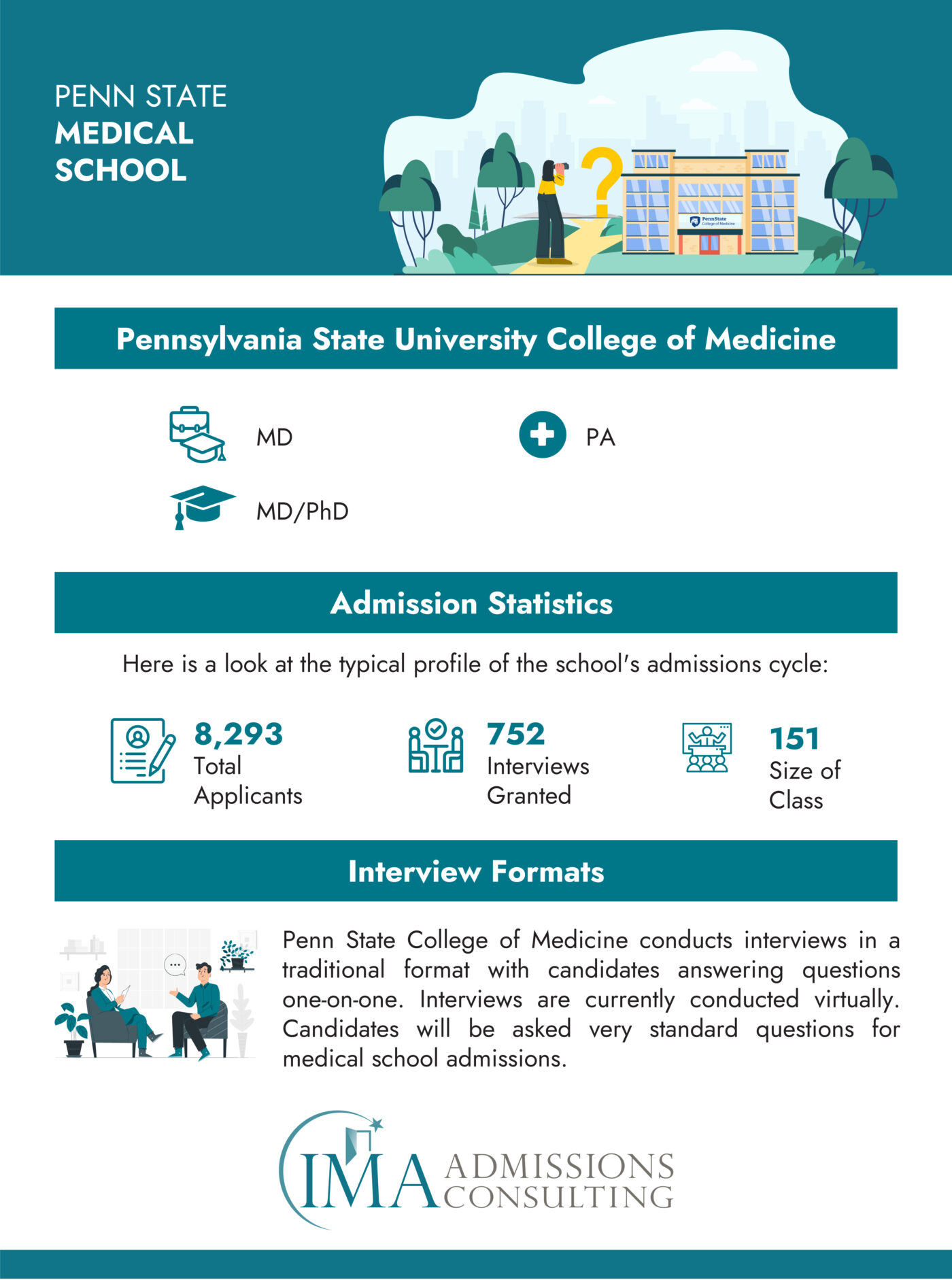
These tuition and fees are based on the Penn State College of Medicine 2022-2023 academic year. Fees are subject to change. Students are required to maintain medical insurance that is purchased directly through Penn State.
- $55,504 Tuition and Fees
- $2,550 Books and Supplies
- $23,329 Room and Board, Travel, and Personal Expenses
- $3,664 Health Insurance
- $72 Loan Fees
$81,503 Total for In-state Students / $81,503 Total for Out-of-state Students
- $1,592 Books and Supplies
- $23,020 Room and Board, Travel, and Personal Expenses
- $3,355 Health Insurance
$81,146 Total for In-State Students / $81,146 Total for Out-of-State Students
- $1,110 Books and Supplies
$81,579 Total for In-State Students / $81,579 Total for Out-of-State Students
$80,004 Total for In-State Students / $80,004 Total for Out-of-State Students
Some 91% of Penn State medical students are receiving financial aid.
The average student ends up with a total medical school debt of $192,585.
You may want to consider that the accelerated medical program at Penn State College of Medicine will help save on tuition costs in that it cuts out a year.
Being knowledgeable can help navigate this complicated system. For more information on the costs of attending medical schools in the United States, visit our Medical School Tuition Database where we offer detailed guidance and helpful information.
AMCAS Primary Application & Penn State Medical School Secondary Application
There are two applications that are necessary for you to complete for consideration for the Penn State College of Medicine program. The first is the standard American Medical College Application Service (AMCAS) that most medical schools do require.
The AMCAS is going to contain basic information about you, your school transcripts, your activities in and out of school, and your personal statement. You will be listing all medical schools for which you plan to apply, and AMCAS will forward this primary application to those schools you have indicated.
When Penn State Medical School receives your primary application from AMCAS, they will review and verify that the application is complete and that, so far, all qualifications have been met before they invite you to complete the secondary application. Each medical school has their own secondary application and this is where you’ll be able to spend more time showing the admissions committee who you are and what you’re trying to achieve.
The fee for completing the secondary application is $90. There is an option for a fee waiver according to need.
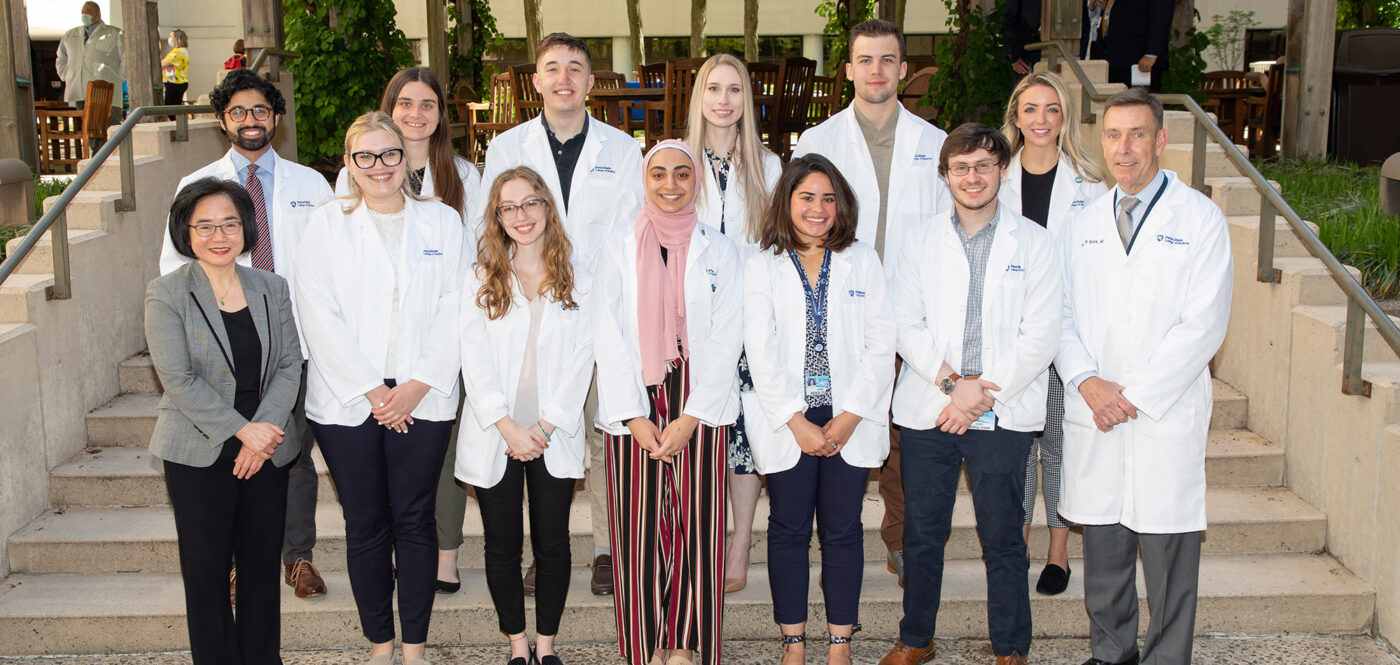
Below are the Penn State Medical School’s secondary essay questions for the 2022-2023 application cycle.
If not currently enrolled in a full-time academic program, please summate your activities from the time of graduation from your baccalaureate program through the time of this application, as well as your plans between now and your matriculation to medical school. (Max 75 words)
As is commonly seen in medical school applications, Penn State’s admissions committee wants to see how you’ve been putting your time to use since graduation. This speaks to your sense of ambition, dedication to growth, and your level of motivation.
Is there a unique aspect of your application that should be considered by the admissions committee? (Max 75 words)
Don’t allow this essay prompt to stump you. Take some time to look over your application, formulate a list of aspects of your application that speak to your individuality, and consider if any of your activities, clinical experiences, volunteer work, etc. would indicate to the Selection Committee that you are going to be an exemplary physician.
Explain why you decided to apply to the Penn State College of Medicine (Max 75 words)
Before answering this question, you’ll want to take some time to look over Penn State College of Medicine’s Mission Statement . Once you’ve spent some time mulling over these foundational pillars of Penn State Medical School, make a list of your reasons for wanting to apply. Which of these reasons is most important to you and also aligns with the school’s values and vision? This is your topic.
Write a short paragraph describing a significant experience you have had working in a team setting. (Max 250 words)
When selecting an experience to focus on, remember you are not constrained to one relating to a medical team. This could be an experience working as a team in a voluntary service project, a community event, a sports team, etc. Be honest about what you gleaned from this positive experience.
Sample Answer:
In 2018, I joined my church’s youth group on a trip to build homes in Haiti. Leaving the comforts of home and joining with the team of local volunteers filled me with apprehension, but I was excited to be a part of something special that would make a real difference to some of the most marginalized and poverty-stricken communities in the world.
Once boots hit the ground, all fear left to make room for the physical exhaustion of a body not accustomed to building houses for 8-10 hours a day. My sore muscles each morning, nor my inability to sleep with the sounds of my teammates snoring all around me, took not an ounce away from the joy that it was to see those simple buildings take shape. We learned quickly the importance of teamwork, as each person took responsibility of their job, just like each part of the body works together for the benefit of the whole.
The most precious moment of the trip came when we put the finishing nails in our last project and, looking into each other’s eyes, burst into exclamations of utter joy and exaltation, embracing one another with a greater sense of camaraderie than I’d ever experienced before. Working as a team to accomplish something truly life-altering permanently changed me, and I knew at that moment that I’d want to spend the rest of my life looking for opportunities to serve alongside teams like this one, serving those in need.
Write a short statement describing how you envision using your medical education to advance care for under-represented or marginalized populations. (Max 250 words)
This is a wonderful prompt with the opportunity to be creative. Take some time to create a vision for a few ways you can accomplish this goal either as a medical student or as a young physician. The admissions committee will be reading to see if selecting you to matriculate is going to have a ripple effect of good throughout the world. That is always the goal.
Be sure to share how your education at Penn State College of Medicine will help shape the opportunities you have to practice humanistic care and serve the marginalized communities of the world on a greater level.
At Penn State Medical School, the interview is an extremely important step to gaining acceptance. These interviews may be conducted virtually. Penn State shares information on the interview process and timeline .
Preparing for an interview can be stressful. Many students find it helpful to receive personalized coaching and even a mock interview through our medical school admissions consulting services.
Our primary mission here at International Medical Aid is to make ourselves available to help the next generation of medical students find their way into the top medical schools in the country. There’s no doubt that applying for medical programs can be complex and challenging, but we are always here to help.
One of the best ways to prepare for the application process is to work with one of our admission consultants. Their job is to help you through the application process, including providing tips and advice on essay writing, preparing you for your interview, and making sure your requirements are all in order.
Take a moment to schedule a free consultation with one of our experts here .
For students interested in the valuable opportunity to shadow physicians, spend time with real patients in a hands-on setting, experience the environment of working in a hospital or clinic, and soaking in a vast amount of knowledge, IMA’s voluntary healthcare internships abroad program is a fantastic choice.
Our pre-med shadowing study abroad program was designed to give pre-medical and gap year students real-life clinical experience, learning to approach medical care with a humanistic approach and practicing important communication skills amongst the active medical community.
Please take a few minutes to explore the benefits of our program and reach out if you have any questions.
As you begin the journey of applying to Penn State College of Medicine, we wish you the best of luck and hope that this guide has shed some light on why Penn State is such an incredible school, how to go about applying, and what to do to give yourself the best possible outcome.
If you’d like some more personal one-to-one guidance, consider our medical school admissions consulting program. This time with a professional can be fantastic for building confidence in your interview skills, making sure Penn State Medical School is the right place for you, and reminding you of the little details in the application that make all the difference.
Whether you knew from an early age that you wanted to attend medical school or searched for medical schools near me, you have probably discovered many wonderful options. Take a few moments to explore some of our other medical school guides:
- CUNY School of Medicine
- SUNY Downstate Medical School
- NYIT College of Osteopathic Medicine
- NYU Long Island School of Medicine
- TOURO College of Osteopathic Medicine
- Albany Medical College
- Norton College of Medicine at Upstate Medical University
- Jacobs School of Medicine at the University at Buffalo
- Hofstra Zucker School of Medicine
- Weill Medical College of Cornell University
- University of Rochester Medical School
- Icahn School of Medicine at Mount Sinai
- Renaissance School of Medicine at Stony Brook University
- Albert Einstein College of Medicine
- Ohio University Heritage College of Osteopathic Medicine
- Northeast Ohio Medical University (NEOMED)
- University of Cincinnati College of Medicine
- University of Toledo College of Medicine
- Wright State University Boonshoft School of Medicine
- Ohio State University College of Medicine
- Rowan University School of Osteopathic Medicine
- Hackensack Meridian School of Medicine (HMSOM )
- Rutgers New Jersey Medical School (NJMS)
- Rutgers Robert Wood Johnson Medical School
- Cooper Medical School of Rowan University (CMSRU)
- A.T. Still University Kirksville College of Osteopathic Medicine
- Saint Louis University School of Medicine
- University of Missouri Medical School
- Kansas City University (KCU)
- UMKC School of Medicine
- New York Medical College
- University of Pittsburgh School of Medicine
- University of Wisconsin Medical School
- VCU School of Medicine
- University of Maryland School of Medicine
- Case Western Medical School
- University of North Carolina Medical School
- University of Florida Medical School
- Emory University School of Medicine
- Boston University College of Medicine
- California University of Science and Medicine
- UC San Diego Medical School
- California Northstate University College of Medicine
- Touro University of California
- CHSU College of Osteopathic Medicine
- UC Davis School of Medicine
- Harvard Medical School
- UC Riverside School of Medicine
- USC Keck School of Medicine
- UT Southwestern Medical School
- Long School of Medicine at UT Health San Antonio
- University of the Incarnate Word School of Osteopathic Medicine
- UT Austin’s Dell Medical School
- UTMB School of Medicine
- McGovern Medical School at UT Health
- Johns Hopkins School of Medicine
- The University of Texas Rio Grande Valley School of Medicine
- UNT Texas College of Osteopathic Medicine
- University of Houston College of Medicine
- Texas A&M College of Medicine
- Johns Hopkins Medical School
- Baylor College of Medicine
- George Washington University School of Medicine
- Vanderbilt University School of Medicine
- St. George’s University School of Medicine
- Lake Erie College of Osteopathic Medicine (in Pennsylvania)
- Sidney Kimmel Medical College at Thomas Jefferson University
- Wake Forest University School of Medicine
- Western University of Health Sciences (in California)
- Drexel University College of Medicine
- Stritch School of Medicine at Loyola University Chicago
- Georgetown University School of Medicine
- Yale School of Medicine
- Perelman School of Medicine
- UCLA Medical School
- NYU Medical School
- Washington University School of Medicine
- Brown Medical School
Feel free to contact us if you have questions about the application process or our medical guides.
International Medical Aid provides global internship opportunities for students and clinicians who are looking to broaden their horizons and experience healthcare on an international level. These program participants have the unique opportunity to shadow healthcare providers as they treat individuals who live in remote and underserved areas and who don’t have easy access to medical attention. International Medical Aid also provides medical school admissions consulting to individuals applying to medical school and PA school programs. We review primary and secondary applications, offer guidance for personal statements and essays, and conduct mock interviews to prepare you for the admissions committees that will interview you before accepting you into their programs. IMA is here to provide the tools you need to help further your career and expand your opportunities in healthcare.
Related Posts
All Posts
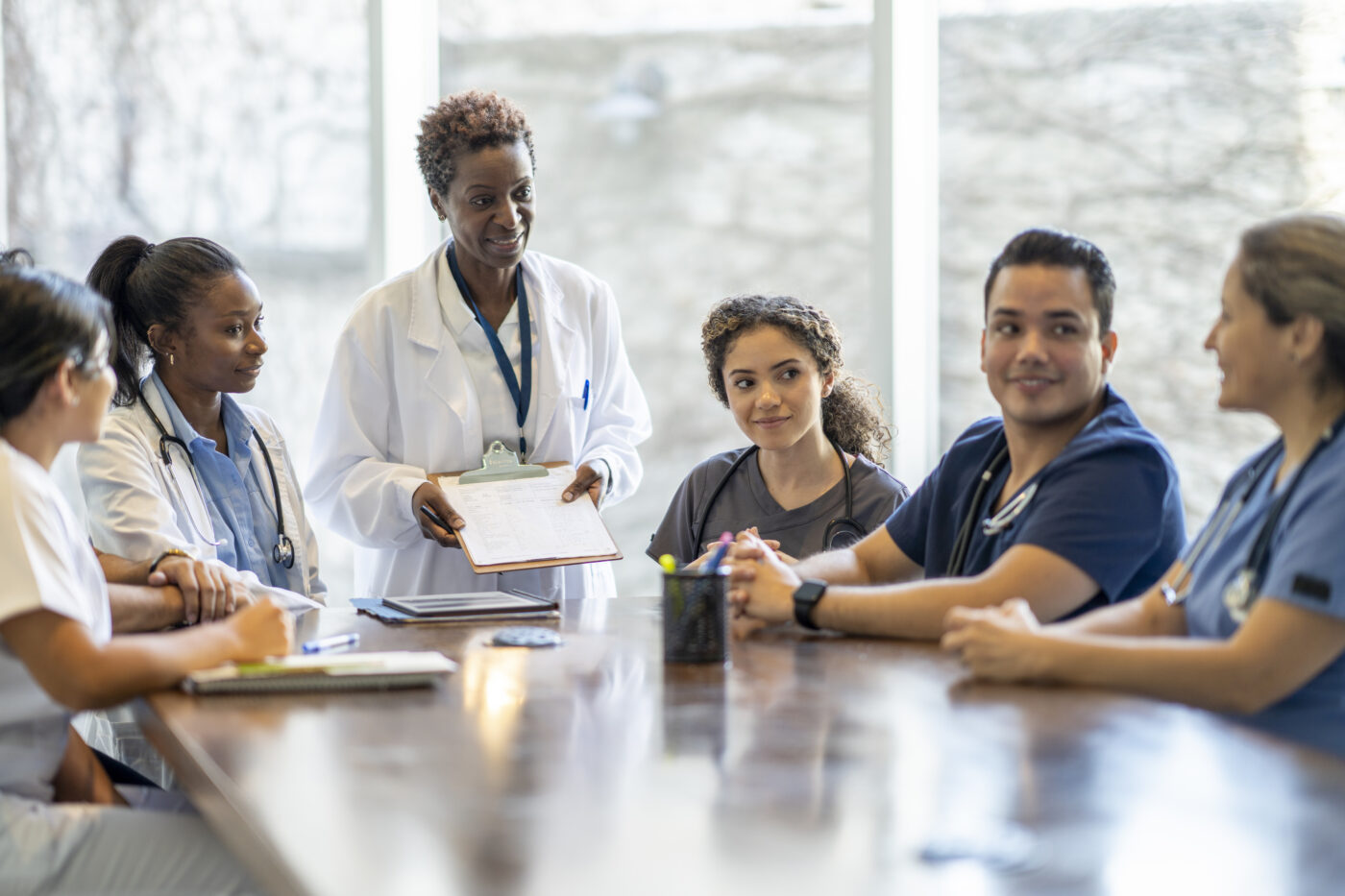
- Admissions Consulting
- Pre-Medicine
Average GPA and MCAT Score for Every Medical School in the US
Wondering how you measure up to other applicants? Check out this comprehensive list of average GPAs and MCAT scores by medical school.
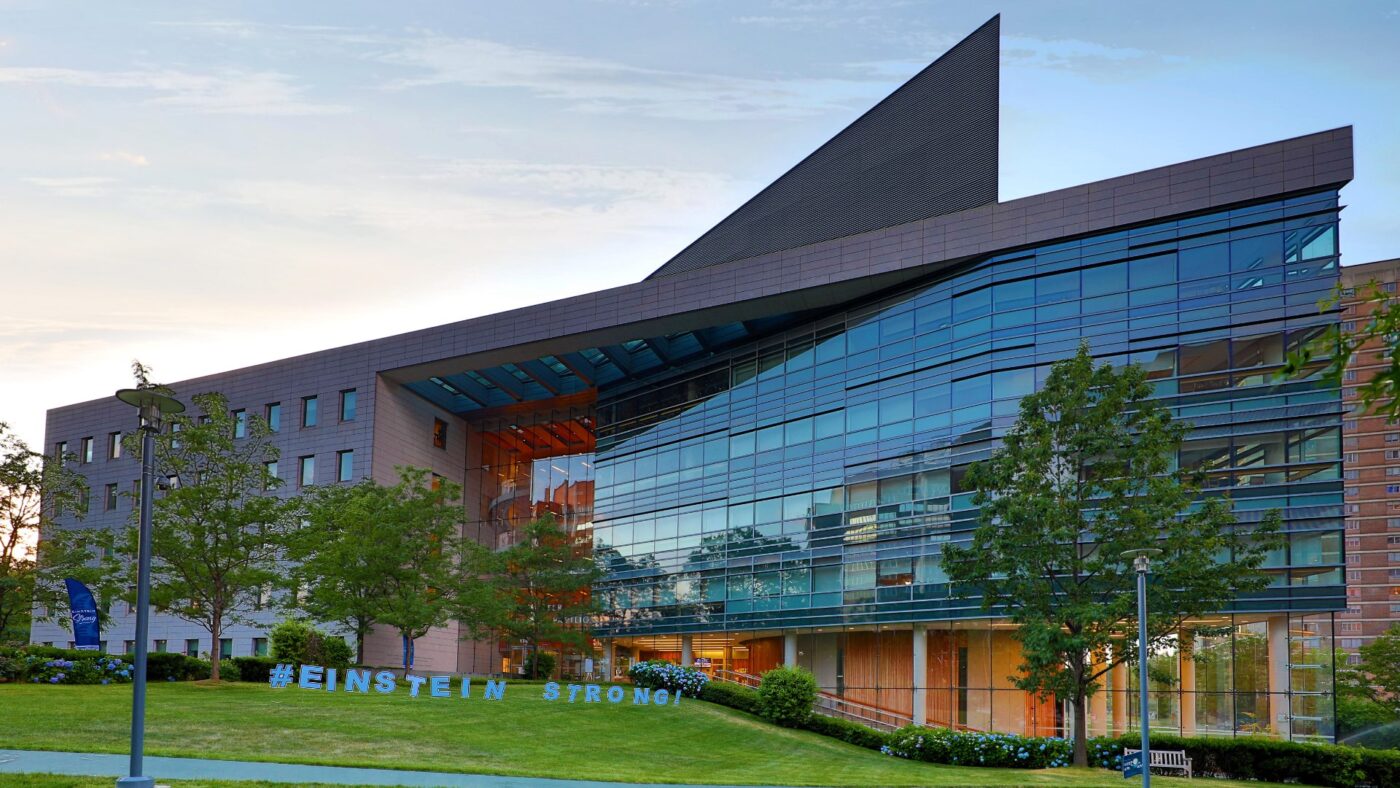
- Medical School Guides
How to Get Into Albert Einstein College of Medicine: The Definitive Guide (2024)
Located in the Bronx, New York, Albert Einstein College of Medicine stands as a beacon of excellence in medical education, renowned for its research-intensive...

AMCAS Personal Statement Examples (2024)
Why is the AMCAS Personal Statement Important? Every year, thousands of graduates apply to medical school. Some of them have fantastic GPAs and MCAT...

How to Get Into CUNY School of Medicine: The Definitive Guide (2024)
CUNY School of Medicine was first established in 1847 as the City of New York College. Since its founding, the university has provided high-quality,...
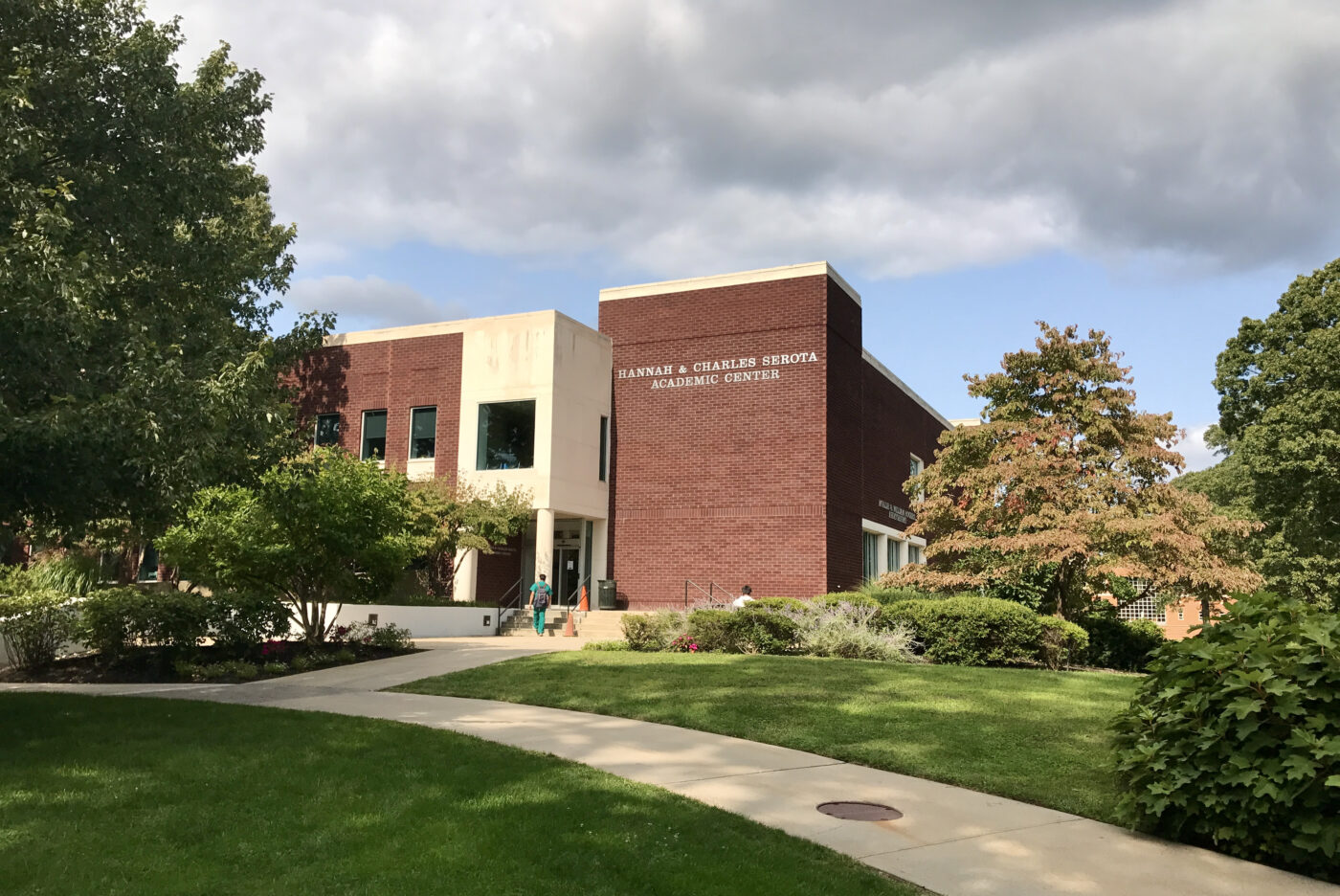
- DO School Admissions
How to Get Into NYIT College of Osteopathic Medicine: The Definitive Guide (2024)
The NYIT College of Osteopathic Medicine is located in Long Island, New York, and is one of just three New York DO schools. Aside...

How to Get Into Albany Medical College: The Definitive Guide (2024)
Albany Medical College is one of the nation’s oldest private medical schools. Founded in 1839, with the first class of 57 students, the college...
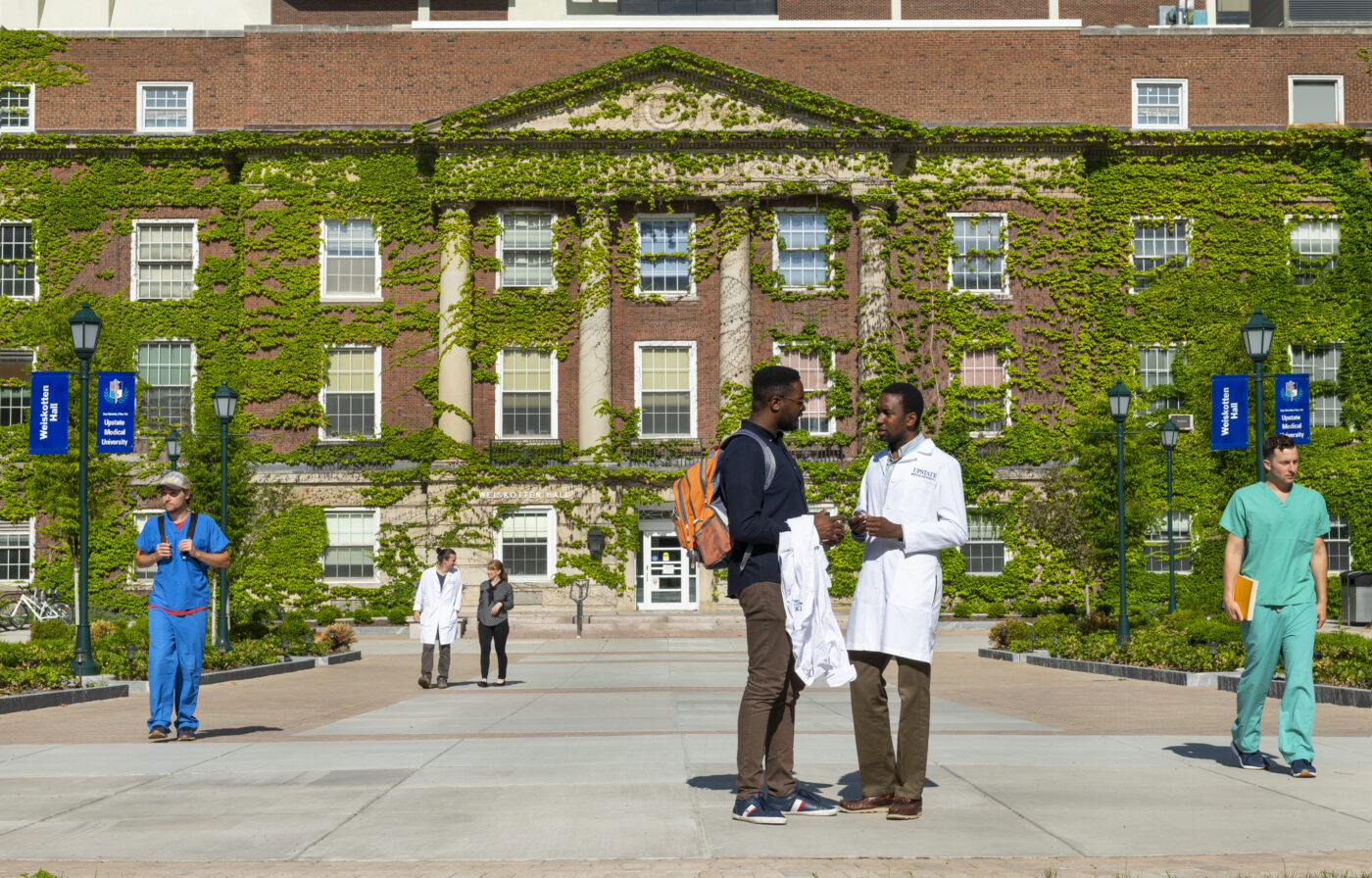
How to Get Into the Norton College of Medicine: The Definitive Guide (2024)
The history of Norton College of Medicine at Upstate Medical University can be traced back to 1834 when Geneva Medical College was founded. Today,...

How to Get Into the Jacobs School of Medicine at the University at Buffalo: The Definitive Guide (2024)
The Jacobs School of Medicine and Biomedical Sciences at the University at Buffalo was founded in 1846. The college remains 1 of 17 New...

How to Get Into Hofstra University Zucker School of Medicine: The Definitive Guide (2024)
The Hofstra Zucker School of Medicine, also referred to as the Donald and Barbara Zucker School of Medicine was established in 2008 by two...

How to Get Into Weill Cornell Medicine: The Definitive Guide (2024)
Cornell Medical School, also referred to as Weill Cornell Medicine or WCMC (Weill Cornell Medical College) is 1 of 17 New York medical colleges....

How to Get Into Icahn School of Medicine at Mount Sinai: The Definitive Guide (2024)
Originally established as the Mount Sinai School of Medicine, Icahn School of Medicine at Mount Sinai (ISMMS) ranks among the top 20 medical schools...

How to Get Into Renaissance School of Medicine at Stony Brook University: The Definitive Guide (2024)
The Renaissance School of Medicine is a public medical school that is part of Stony Brook University School of Medicine. The college is connected...
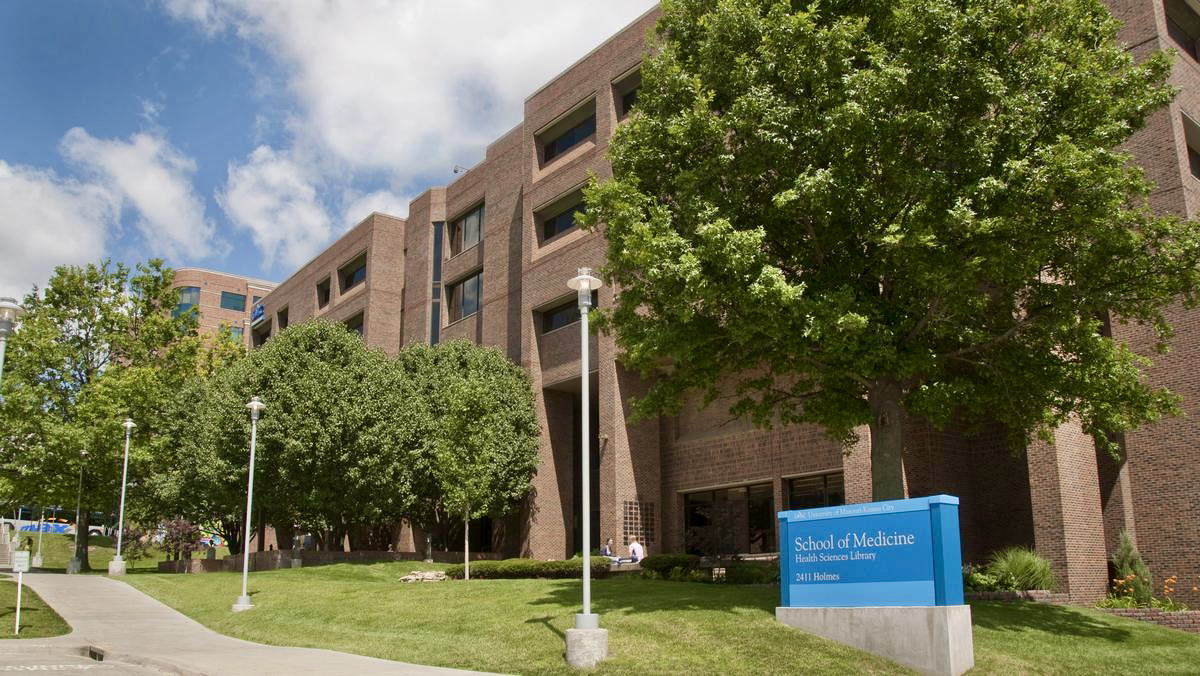
How to Get Into UMKC Medical School: The Definitive Guide (2024)
Known for its accelerated BA/MD program and a high percentage of graduates working in medically underserved areas, the UMKC medical school attracts aspiring medical...

How to Get Into New York Medical Colleges in 2024
Medical colleges in New York range from large research universities to small private colleges. Students interested in attending one of the New York medical...

10 Most Expensive Medical Schools in the United States (2024)
Medical schools cost a lot of money. If you plan on becoming a doctor, you should know that it is one of the most...

Medical Schools That Don’t Require The MCAT in 2024: The Definitive Guide
Introduction Did you know that nearly 25% of all students who write the MCAT go on to write it again? Most of those students...

BS/MD Programs: The Definitive Guide to Getting In
Here at International Medical Aid, we talk a lot about getting into medical school. It’s one of the main things we do as part of our...

20 Best Medical Schools in US
Do you want to earn your medical degree at one of the best medical schools in the country? Your goal is the same as...

Applying to Medical School: The Differences Between the MD and DO Application Services
Part 1: The Differences Between MDs and DOs If you want to become a medical doctor, there are two different routes you can take....

Applying to Medical School with AMCAS: The Definitive Guide (2024)
Part 1: Introduction If you’re applying to medical school, chances are you’ve heard a lot of terms (like AMCAS) that you don’t understand. Like...
Take the Next Step
Which program are you applying to?

Accepted Admissions Blog
Everything you need to know to get Accepted

July 5, 2022
University of Pennsylvania Perelman School of Medicine Secondary Application Essay Tips [2022 – 2023]
![penn state medical school secondary essays University of Pennsylvania Perelman School of Medicine Secondary Application Essay Tips [2022 - 2023]](https://blog.accepted.com/wp-content/uploads/2022/07/Penn_Perelman_Tips_2022-2023.jpg)
With excellent ratings in research and primary care, UPENN’s Perelman School of Medicine is looking for students with strong communication skills who can articulate their motivations to study medicine and serve as community leaders. Providing further information and insight in this secondary application about the reasons why you are motivated to study medicine at UPENN will be important. Even better, if those motivations illuminate character and the way your life goals have shaped you as a person and leader, you will impress the adcom.
To learn more about UPenn Med School, check out our recent podcast interview: Deep Dive Into Penn Perelman School of Medicine With Dr. Neha Vapiwala, Dean for Admissions >>
UPenn Medical School 2022-23 secondary application essays
Upenn medical school essay #1.
Were there changes to your academic work and/or personal circumstances due to the COVID-19 pandemic that you would like to share with the committee? Y/N If Y, Please describe these changes during this time in 500 characters or less .
It might be helpful to brainstorm a little before answering this prompt. Other schools categorize the adjustments due to COVID-19 in three ways: personal, professional and educational. Stay factual. You do not have a lot of room here (500 characters or less). Close positively. What did you do to engage the pandemic and help the vulnerable? How did this unprecedented world moment teach you something about being a physician, about population health? How did a pandemic motivate you to get involved in the community in new ways?
UPenn Medical School essay #2
If you were offered an option to continue courses with a standard grading system or switch to Pass/Fail, and you elected Pass/Fail, please describe the reason(s) for your decision here. (500 characters)
Historically in higher education, Pass/Fail is an opportunity for students to explore without consequence a subject matter that is not germane to their degree, or it’s an intervention for an impending poor final grade, which could have a variety of causes. If you chose Pass/Fail during the pandemic, there may be a very reasonable explanation. Also, sometimes, the reason for choosing Pass/Fail for Spring coursework in 2020 has something to do with your college or university’s policies. Don’t over-explain. Don’t be emotional. Just explain the course and the circumstances that made Pass/Fail the right option. If there was institutional precedent to encourage students to choose the Pass/Fail option explain that rationale here. Schools have different circumstances and reasons for the pandemic decisions they made. If you quarantined during Spring 2020 and this influenced your decision to switch to Pass / Fail, explain what is reasonable about having made that decision. Keep it short and clear.
UPenn Medical School essay #3
Have you taken any online courses for credit? (not due to the COVID-19 pandemic)
You should answer this question directly and honestly, giving your grades on the courses. If you took a course online to offset a grade for the same course taken in person at your school because you were unhappy with your performance, please explain what happened, if anything, that influenced your performance without blaming others. If there was a positive reason for taking that online class that had nothing to do with poor performance, tell them that too. Please list all science courses taken online.

UPenn Medical School essay #4
Have you been nominated for or received an award from any state, regional or national organization?
You should answer this question practically, providing the award, an explanation of what the award is for if it is not immediately clear in the award name, the awarding organization, and the year of the award. You need very little story here. State your awards and honors simply, clearly and directly. Don’t pad this answer. No gloating.
UPenn Medical School essay #5
Have you taken or are you planning to take time off between college graduation and medical school matriculation? If so explain in 500 characters or less .
If you have already graduated from college, you should explain what you were doing over the last year(s). If you haven’t yet graduated, you should describe plans for the gap year(s) , including positions for which you plan to apply and planned or actual volunteer work.
Staying engaged in clinical activities is key. Building upon your exposure to patient care and research is wise as well. You might travel abroad for a medical mission trip, volunteer, or work in health care for pay. Are you a scribe? An EMT? The gap year experience must be an opportunity to show the admissions committee how practically or imaginatively you utilized this time to engage health care, locally or abroad, or re-engaged academia in a master’s program, to offset a low GPA, to show your commitment to becoming a doctor.
Show that your gap year will be a growth year!
UPenn Medical School essay #6
Have you participated in any global activities outside of the U.S. prior to submitting your AMCAS application? If so, explain in 1,000 characters or less .
For this question, you should respond if you have done any volunteer, paid or academic work outside of the U.S. This would include overseas missions and study abroad programs. For each activity, provide a brief explanation, including the amount of time you were abroad and the general scope of your activities there. This response should be direct and to-the-point. Be sure to provide the name and brief mission of the organization, if that is how you participated in a medical or humanitarian mission. Conclude with what you learned.
UPenn Medical School essay #7
The Perelman School of Medicine (PSOM) is deeply committed to recruiting a diverse class to enrich an inclusive team-based learning experience. How would you and your experiences contribute to the diversity of the student body and/or how would you contribute to an inclusive atmosphere at PSOM? Please explain and limit your response to 1,000 characters .
Please explain an aspect of your identity or culture or upbringing as a valuable contribution to a diverse and inclusive group of medical students, or tell a brief story about how you advocated for someone who experienced bias or discrimination. Witnessing bias or discrimnation and not doing anything about it is not a wise story to tell here. Schools want to see advocacy not solely as an ideal, but as a verb, as an action in the name of inclusivity.
UPenn Medical School essay #8
We are all navigating through challenging times, and physicians and physician-scientists must contend with many instances of uncertainty. Describe a time when you faced a situation that was ambiguous, confusing, or uncertain, and how you navigated making a decision without complete information (3000 characters)
This is a new prompt for UPenn. Uncertainty, in medicine, engages an academic concept from Philosophy called epistemology, or knowing, and is often included in Narrative Medicine curricula. Uncertainty is a concern in the study of epistemology about encounters in human experience where there is a lapse in or absence of explicit evidence. It is a lapse between what we already know about data-driven truths and a lack of information present in what is being assessed, whether communities and cultures, pandemics, the human body, disease or human biology – or the research related to any of these subjects. Uncertainty happens in medicine when health care professionals, in this case, physicians, shift from textbook knowledge of medicine to the practice of medicine. Also, uncertainty happens in medicine when faced with novel situations, take COVID-19, for instance.
Uncertainty enters into the professional experiences of physicians acutely when they begin to practice and will continue through the whole arc of their career. Handling uncertainty is an advanced skill, yet a necessary one, for physicians and scientists.
What does a physician do when they do not have quite enough “truths” related to a patient’s condition and situation? The first step is to identify where the lapse exists. Does the physician need to further educate themself on a topic or call upon another physician who has the specialized knowledge necessary in order to understand what they’re assessing? Or is the topic still rife with opaque mysteries and thereby requires further study and investigation? Or both?
Once the source of the lapse is identified explicitly, a physician makes a decision about what to do under less than ideal circumstances based on pathways including but not limited to improving or finding further medical evidence, improving or employing health information technology such as extracting data from electronic health systems and databases or improving electronic patient notification systems, finding and correcting bias, and developing theoretical approaches to making predictions for a plan to move forward. In answering this prompt, begin with identifying and defining what was uncertain about a problem you faced. Then explain how you identified the source of the lapse of knowledge. Then explain how you figured out what to do about it, to the best of your ability. Do not feel compelled to make the uncertainty go away. Remember, so much uncertainty in medicine is intricately related to the vital space of research and discovery situated at the demarcation between what we already know and what we do not yet know.
UPenn Medical School essay #9
Do you identify as a first-generation college graduate and/or having a low-income background? We recognize that the definition of “low income” can vary based on geographic location and size of your household, but there are other factors that may be consistent with low-income, such as having qualified for free/reduced lunch in middle/high school, having received Pell grants or work-study aid during college, having qualified for Medicaid/Social Security benefits, or having attended a high school with low per capita funding or title 1 designation and/or a low percentage of seniors receiving a high school diploma.
If you are not a first-generation college graduate and do not have nor have had a low-income background simply state that.
If your family or school circumstances fit any of the examples, please state which ones and give a little context. For instance, if your public high school was a Title 1 school, a school with at least a 40% low-income population, state that information while providing some facts about the school or school district’s demographics. It’s likely you can find these facts online.
This prompt aims to rectify bias, yet they are not asking for a personal story. They are seeking the facts that are strong indicators that your life, compared to others, likely had more hardship. If your family or school circumstances contain any low-income identifiers, it’s likely U Penn is trying to use this information to help eliminate bias that is not necessarily evident by solely asking for your family income, as they do in another part of the application.
They ask about some indicators of socio-economic disparities to catch any SES ambiguity. For instance, a family of six living in San Francisco may have a higher income than a family of three in Average Town, USA, but they may experience much more economic hardship because the cost of living in San Francisco is exorbitant. Or someone might be from a family whose income is not notably low, but they may have received Medicaid benefits because they were adopted through the county under high-risk circumstances.
Also, feel free to provide any other facts that might point toward disparity in any way, as long as the facts are true, including changes in family circumstances. Sometimes a family falls into hard times, loses an income, suffers the loss of a parent, or a parent became disabled and qualified for social security disability while you were in high school. If you were still a child when any hardship happened, it’s worth mentioning.
UPenn Medical School essay #10
Have you or your family experienced economic hardships? (1000 characters if yes)
If you answer yes to this question, you should briefly explain what those hardships were and how they impacted your journey to medical school (etc. frequent moves, working during school, etc.). If you left and returned to school because of hardship, please explain that here.
This prompt is linked to the #9 in that you can answer this prompt with a story of hardship rather than providing potential evidence of low-income hardship, as you may have done in the previous prompt.
UPenn Medical School essay #11
Have you ever been employed at the University of Pennsylvania Health System or Children’s Hospital of Philadelphia and worked with a University of Pennsylvania faculty mentor? If yes, please indicate name, department, phone number of faculty member(s) , and start/end dates.
You should answer this question briefly with the information requested.
UPenn Medical School essay #12
Please explain your reasons for applying to the Perelman School of Medicine and limit your response to 1,000 characters.
Since this secondary question requests a short essay, be succinct in your response. Start by doing your research on UPENN; read their mission statement , standards for admission , and basic requirements . Check out the structure and focus of their curriculum.
What excites you about their school? Do you have a connection to their location? Do they offer any special programs or specialties that you are interested in? In what ways are the school’s goals similar to your own? How will Perelman’s faculty, curriculum, or special programs better prepare you for a career in medicine? This is an opportunity to show Perelman that you understand who they are, and how you’re a good fit for them — not just what they can do for you.
Watch: Perelman’s Dean of Admissions debunks common myths about the program
Applying to UPenn Med School? Here are some stats:
UPenn median MCAT score: 522
UPenn Medical School median GPA: 3.95
UPenn Medical School acceptance rate: 8.8%
U.S. News ranks UPenn #6 for research and #20 for primary care.
Check out the Med School Selectivity Index for more stats.
Has this blog post helped you feel more confident about approaching your UPenn Med School application? We hope so. It’s our mission to help smart, talented applicants like you gain acceptance to your top choice med school. With so much at stake, why not hire a consultant whose expertise and personalized guidance can help you make your dream come true? We have several flexible consulting options— click here to get started !
University of Pennsylvania’s Perelman School of Medicine application timeline [2022-2023]
Source: Perelman School of Medicine website

Related Resources:
- 5 Fatal Flaws to Avoid in Your Med School & Secondary Essays , a free guide
- 3 Reasons Why Writing About Overcoming Obstacles Strengthens Your Application Essays
- 7 Simple Steps to Writing an Excellent Diversity Essay (With an Example)
About Us Press Room Contact Us Podcast Accepted Blog Privacy Policy Website Terms of Use Disclaimer Client Terms of Service
Accepted 1171 S. Robertson Blvd. #140 Los Angeles CA 90035 +1 (310) 815-9553 © 2022 Accepted

- Medical School Secondary Essays
UPenn Medical School Secondary Essay Examples
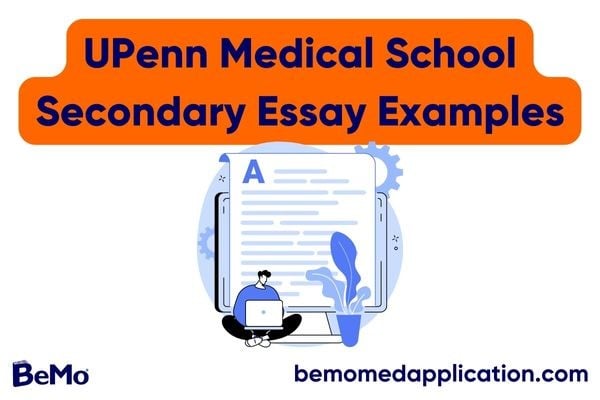
If you’re feeling stumped, staring at a blank page, tired of reading tips and articles on structure, you might try a new approach: perusing some UPenn medical school secondary essay examples. Studying expertly written essay examples will let you see how all the advice and tips on writing secondary essays get put into action.
There is always the question of how to make your medical school application stand out . Look to your essays, as secondary essays are uniquely tailored to you and your school of choice. What better method can there be for how to prepare for your medical school application ?
In this article, we will provide you with up-to-date prompts for the University of Pennsylvania’s secondary essays and examples for each prompt.
>> Want us to help you get accepted? Schedule a free strategy call here . <<
Article Contents 7 min read
List of prompts, required upenn essay prompts.
The following essay prompts are required for all students:
“The Perelman School of Medicine (PSOM) is deeply committed to recruiting a diverse class to enrich an inclusive team-based learning experience. How would you and your experiences contribute to the diversity of the student body and/or how would you contribute to an inclusive atmosphere at PSOM?”
Limit: 1,000 characters
Sample Answer:
My friends and I looked like a Diversity poster. I was the Asian kid, but we basically had the whole spectrum of humanity contained within our group. The thing is, we never treated each other differently, and in our group, the idea of equality and philadelphia between people of all races, nationalities, and groups seemed possible in our lives.
When we were younger, we didn’t pay any attention to that kind of race stuff, but as we got older, the inevitable hard truths rained down on us. I, and my friends, became involved in local movements to champion diversity.
I believe in these ideals, but one thing that always bothered us was how divisive the language of inclusion is, which is dreadfully ironic. I believe that my unique contribution can be as an activist and as a champion of diversity who is also a peacemaker and a bridge between people who aren’t yet interested in rallying to a cause.
Would you like us to help you with your medical school secondary essays? ","buttonText":"Free Strategy Call","buttonColor":"#ffffff","bannerUnderText":null,"belowButtonText1":null,"belowButtonText2":null,"trustpilot":false}" :url=""https:\/\/bemoacademicconsulting.com\/contact-schedule-free-strategy-call"" code="banner1" background-color="#000066" button-color="#ffffff" banner-image> Prompt 2
“Please explain your reasons for applying to the Perelman School of Medicine.”
Perelman School of Medicine is located in a hospital. Other schools have a more academic setting, but you are right there in the thick of the action, as it were. I think that this direct contact with medicine will take me from academia and theory directly into the clinical and practical context that is the purpose of my studies.
Very few schools can boast of such close proximity to the environment that their graduates will one day occupy. In my case, I have always been a “doer,” and more theoretical aspects of learning never suited me as much as the hands-on. I was far more at home in shop class than in English. I’d rather have tools than theories.
For this reason, I believe that not only will I learn best through Perelman, but I also believe that I will sync up well with the School and be able to contribute in ways I would not be able to at other institutions.
Looking for college essay tips? Check out the infographic below:
“Have you taken or are you planning to take time off between college graduation and medical school matriculation? Please describe your activities during this time.”
Limit: 500 characters
I plan to take a gap year before medical school due to my college experiences. Growing up in a very small, very conservative area, I was not exposed to many alternative viewpoints, and I found that my ideas were challenged at college in the best way. I felt like I was expanding my horizons exponentially. I want to continue that experience.
I am joining Habitat for Humanity to build houses and assist communities that have been adversely affected by disaster.
“Have you participated in any global activities outside of the US prior to submitting your AMCAS application?”
I am a traveler between multiple worlds, and these worlds stretch and strain me constantly. My family comes from Iran. I am a Muslim, and I find myself at a strange nexus: perceived as radical by other people, I am an American, but also an “Other.” I seek peace, but I struggle with notions of diversity that are challenged every day.
The global activity I participated in involved an invitation to travel to France and participate in a campaign of togetherness and tolerance. Despite having a very thin grasp of French, I agreed to go along. My cousin was organizing an outreach program to help establish better relations between Muslim and non-Muslim populations in France – a nation that increasingly must make peace with its Muslim denizens.
The events were a series of meals between community members and leaders, which functioned simultaneously as social events and think tanks. I believe we helped make some small progress toward amity in France.
Free Webinar: How to Make Your Secondary Essays Stand Out ","buttonText":"Register Now!","buttonColor":"#ffffff","bannerUnderText":null,"belowButtonText1":null,"belowButtonText2":null,"trustpilot":false}" :url=""https:\/\/bemoacademicconsulting.com\/secondary-essay-webinar-registration-initial"" code="banner2" background-color="#000066" button-color="#ffffff" banner-image> Prompt 3
“Are there any special, unique, personal, or challenging aspects of your personal background or circumstances that you would like to share with the Committee on Admissions, not addressed elsewhere (siblings/relatives at Penn, applying as a couple, educational environment, culture, ethnicity, etc.)”
My husband and I both aspire to work in the medical community, and we are applying together to suit that end. We both met while doing our undergrads – he was studying English while I was working on anthropology – and while we knew there would be difficulties in getting married prior to medical school, we also knew that we didn’t want to wait for all the years required to attain our degrees.
Therefore, we are applying together. He is looking into specializing in psychology, while at the moment, I favor general medicine. Ideally, we would like to practice together someday, but for now, the goal is just to study and train together.
While we have discussed the ramifications of studying separately, we would prefer to acquire our medical degrees together, as this would make our personal lives much, much easier. We both agree that Perelman is our top choice.
“Were there changes to your academic work and/or personal circumstances due to the COVID-19 pandemic that you would like to share with the committee? Please describe these changes during this time.”
As part of my psychology major, we were studying the effects that casual, social interaction had on outcomes in psychological treatment.
If there ever was a discipline and study that was debilitated by the concept of “social distancing,” this was it. We were forced to put our research and experiments on hold while we conceptualized a way forward in a project that required human interaction.
Our solution was a photo-negative of the study: focusing on absence, rather than presence.
“If you were offered an option to continue courses with a standard grading system or switch to Pass/Fail, and you chose Pass/Fail, please describe the reason(s) for your decision here.”
I chose Pass/Fail because I wanted to refocus my attention. I felt like my goal was becoming the acquisition of the highest possible grade. I knew that this was not really the point of education. The point of education is to acquire knowledge, to learn how to think, and to gain insights into whatever subject you are studying.
The Pass/Fail system allowed me to forget grades and focus on what really mattered: knowledge. I did this to keep myself focused on the true goal of education.
Would you like us to help you with your medical school secondary essays? ","buttonText":"Free Strategy Call","buttonColor":"#ffffff","bannerUnderText":null,"belowButtonText1":null,"belowButtonText2":null,"trustpilot":false}" :url=""https:\/\/bemoacademicconsulting.com\/contact-schedule-free-strategy-call"" code="banner1" background-color="#000066" button-color="#ffffff" banner-image> Prompt 6
“Have you taken any online courses for credit? (not due to the COVID-19 pandemic)”
Limit: Unknown
The History of Eastern Europe, as taught by Prof. Davisfield, was a unique opportunity I could not pass up. Offered at a college in another country, I could not afford travel expenses, nor could I arrest my studies at my then present institution.
I elected to take Prof. Davisfield’s wonderful course, based on its reputation for immersion in the history of Eastern Europe from unique perspectives. Davisfield’s unique approach meant focusing on the everyday lives of citizens, rather than going from conflict to conflict and centering on division, as so many courses on Eastern Europe do.
Due to the uniqueness of the course, I requested to attend lectures via Davisfield’s livestream and was accepted.
Have you started planning your Medical School Secondary Essays yet? Stay ahead of the curve with this helpful video!
“Have you been nominated for or received an award from any state, regional or national organization? (if you select Yes, you can list different awards and write about them briefly)”
State level:
Rhode Island Spelling Bee – Runner-up / 2 nd place awarded
Charles Innsfield Essay Competition – Presented from the Innsfield Future Leaders Society – 2 nd Runner-up / 3 rd place awarded
Regional level:
New England Sustainability Award – with my high school class. Presented by the Greener New England Organization, given for our work collecting trash and assisting with a new recycling program.
National Level:
Research Initiative Award – nominated – for a research paper I wrote while doing my undergrad; the paper concerned rituals shared between humans and animals, focusing on how elephants and people mourn the dead.
“Have you or your family experienced economic hardships?”
You see a game piece, used to propel your token between one and six spaces, but I get anxiety every time it rolls. My father used to have a very big problem rolling dice. He always seemed to be “up” for “so long,” but by the time he got back to the house, he had found his way down again. This behavior lost us our house and moved us into much smaller accommodations. It meant downsizing and putting to yard sale most of our toys. How many of your toys lasted your whole childhood? I had two make it through.
My parents almost lost their marriage as well; they separated but never divorced, and once Dad got help, they got back together.
We’re doing fine now, but these trials have left me with a major aversion to gambling activities. Fortunately, I have also learned to persevere, to help loved ones, rather than give up on them, and to make homes out of human connection instead of material things.
Acing your medical school secondaries is not easy. We can help! ","buttonText":"Free Strategy Call","buttonColor":"#ffffff","bannerUnderText":null,"belowButtonText1":null,"belowButtonText2":null,"trustpilot":false}" :url=""https:\/\/bemoacademicconsulting.com\/contact-schedule-free-strategy-call"" code="banner3" background-color="#000066" button-color="#ffffff" banner-image> Prompt 9
“Have you been employed at the University of Pennsylvania Health System or Children’s Hospital of Philadelphia and worked with a Penn faculty mentor? If yes, please indicate name, department, phone number of faculty, and start/end dates.”
I was employed at the Children’s Hospital of Philadelphia and worked with a Penn faculty mentor.
Name: Dr. Beth McCartney
Department: Pediatrics
Phone Number: Add the phone number of the faculty member.
Start Date: Add the start date: day, month, year.
End Date: Add the end date: day, month, year.
Reading the expertly written essays above should give you excellent insight into how to form your own answers to the University of Pennsylvania Perelman School of Medicine’s secondary essay prompts.
Secondary essay prompts change, but not radically. You are almost guaranteed to come across a “Why this school?” essay, for instance. Most other prompts will remain fairly similar, as secondary essays are often focused on diversity, adversity, personal growth, and other similar qualities.
Yes, they are usually similar, although they will not be identical; don’t think you’ll be able to copy-paste essays from one school to the other.
If a prompt is extremely similar and your answers will be similar, yes, you can use the same language for both responses.
However, do note that you need to be extra careful to eliminate any references to specific schools or programs. Take the time to tailor your responses to each school.
Yes. Not only are the character caps hard limits, but they also include spaces, so make sure you measure your essays accordingly.
Never exceed the limit by so much as one character. It is better to adopt a policy of brevity, anyway; say more with less whenever possible.
As soon as the prompt list is released, you should begin working on your essays at least a little bit each day. We recommend, if possible, to spend some time every day for 2–3 weeks working on your essays.
Essentially, yes. You might not be getting a letter grade or score, but you are being evaluated. Treat these as though you are being graded.
Absolutely, yes. If you were an evaluator – a member of the admissions committee – and you came across an essay which was difficult to read due to frequent spelling and grammar errors, what would you think of the writer?
Linguistic errors might occur for many reasons – dyslexia or having English as a second language, for instance – and those are legitimate apologies for a certain number of errors. However, the committee is selecting students who will one day become medical doctors, with literal lives in their hands. If they are worried about your ability to communicate life-saving instructions, or understand important details, that will reflect negatively on your candidacy.
Write all the essays. Each essay is an opportunity to improve your standing with the committee. Take advantage of every opportunity given. In this way, you will be as competitive as possible with your application.
Want more free tips? Subscribe to our channels for more free and useful content!
Apple Podcasts
Like our blog? Write for us ! >>
Have a question ask our admissions experts below and we'll answer your questions, get started now.
Talk to one of our admissions experts
Our site uses cookies. By using our website, you agree with our cookie policy .
FREE Training Webinar:
How to make your college applications stand out, (and avoid the top 5 mistakes that get most rejected).
Time Sensitive. Limited Spots Available:
We guarantee you'll get accepted to med school or you don't pay.
Swipe up to see a great offer!

Sign up to our Newsletter
Ucsd school of medicine secondary essay prompts & examples.

Reviewed by:
Jonathan Preminger
Former Admissions Committee Member, Hofstra-Northwell School of Medicine
Reviewed: 5/31/24
Writing compelling essays is a great way to stand out in your application to UC San Diego medical school. Keep reading to learn more.
The UCSD secondary essays are your opportunity to make an impression on the admissions committee. UCSD, which is one of the best medical schools in the state, wants to know more about you beyond what's in your primary application. So, let’s break down how you can do this effectively.
Get The Ultimate Guide on Writing an Unforgettable Personal Statement

UCSD School of Medicine Program Options
UC San Diego School of Medicine has a range of programs to choose from, including the MD Program, MD/PhD, and the Program in Medical Education - Health Equity (PRIME-HEQ). Let’s take a look at them.
At UC San Diego School of Medicine, the MD program is built around an Integrated Scientific Curriculum that combines clinical medicine with medical science. The curriculum focuses on teaching health and disease within the context of human organ systems, providing a solid foundation for clinical practice.
The program structure is quite fixed through the first three years, offering a thorough base in medical sciences. Despite this, there's flexibility with elective courses during the pre-clerkship years, allowing students to pursue areas of interest. In the third year, students choose two clinical electives, and the fourth year broadens the choice with a variety of clerkships to meet graduation requirements.
A key part of the curriculum is the Independent Study Project (ISP). This project emphasizes the development of self-directed learning, critical thinking, and problem-solving skills necessary for medicine. The ISP is a chance for students to dive deep into a topic of interest under the guidance of a faculty mentor.
Electives form a significant component of the curriculum. In the first two years, students engage in pre-clerkship electives to broaden their medical education, requiring around 135 hours of work. These can include a mix of coursework, lab work, and even courses from outside the School of Medicine.
In the later years, clinical electives focus on ensuring students gain comprehensive direct patient care experience. Requirements include ambulatory, inpatient, and primary care clerkships, along with other elective clerkships, to round out their education.
Overall, the UC San Diego MD program aims to produce well-rounded physicians equipped with the necessary scientific knowledge, clinical skills, and a compassionate approach to healthcare.
MD PhD vs. MD
At UC San Diego, the MD-PhD program , which is part of the Medical Scientist Training Program (MSTP), combines medical training with research. You earn an MD and a PhD.
This program partners with top research institutions, such as the Scripps Research Institute and the Salk Institute. It typically takes seven to eight years to complete and prepares you for a career in which you can treat patients and conduct research.
The MD program is more straightforward. It focuses on training you to be a doctor and takes about four years to complete. The main goal is patient care, though some research opportunities exist.
If your main interest is working with patients and finishing your training sooner, choose the MD program. If you're excited about research and patient care and don't mind a longer study period, the MD-PhD might be right for you. Your decision depends on what you want to do in the future.
Program in Medical Education – Health Equity (PRIME-HEQ)
The Program in Medical Education - Health Equity (PRIME-HEq) at UC San Diego is a unique MD and master’s program that spans five years. It’s tailored for those looking to serve under-resourced communities in California, aiming to bridge gaps in health equity.
Annually, PRIME-HEq admits 12 students who are ready to tackle a range of medical specialties but share a common drive to work where health disparities are most pronounced. The program values students' community service backgrounds and builds on these experiences.
Faculty members guide students in identifying and understanding populations at risk for health disparities. Students get the chance to work closely with these groups, gaining both training and exposure. This hands-on approach helps students to deepen their understanding and commitment to these communities.
By the program's end, graduates are capable physicians and informed advocates for health equity, equipped to make a real difference in the communities they serve.
Global Health Academic Concentration (GHAC)
The Global Health Academic Concentration (GHAC) at UC San Diego is aimed at medical students interested in global health. This program teaches the complexities of healthcare delivery worldwide, the ethics of global health research, and the causes of health disparities. GHAC prepares you to work with international communities.
It offers training in global health research and hands-on experience in healthcare delivery abroad. The program also explores the social and structural factors behind health inequalities.
GHAC is great for students passionate about improving global healthcare and pursuing an academic career in this field.
No prior international experience is needed to apply. If you're up for the challenge and eager to make a difference in global health, GHAC could be the right choice. It equips you with the tools and knowledge to effectively address global health issues.
UCSD Secondary Application Steps
The UC San Diego School of Medicine secondary application process has several important steps:
- Invitation : Check your email (including junk mail) for an invitation to submit a secondary application, as it's sent via email from UC San Diego. Be sure to add the UC San Diego domain (ucsd.edu) to your safe list.
- Fee Waiver : If you received a fee waiver from AMCAS, you’ll automatically get the fee waived for the secondary application, too. If you didn't get one but think you might qualify, you can request it by emailing [email protected] after you've received your invitation.
- Required Materials : You’ll need to submit:
- $135 application fee (unless waived).
- A biographical sketch, different from your AMCAS personal statement.
- Statement about any criminal convictions.
- Personal background information.
- Details on extracurricular activities , academic, work, and research experiences.
- Publications, presentations, and fellowships.
- Medical, clinical, volunteer, and community service experiences.
- Letters of Recommendation : Don’t send these directly to UCSD. Instead, use the AMCAS Letters Service. You need at least three letters , or a single "Committee Letter" can suffice. For MD/PhD applicants, make sure one of your letters comes from a research mentor.
- Invited for an Interview: You’ll move to the next step.
- On Hold: You might still get an interview invite later.
- Not Invited: You’ll be notified via email that your application will not proceed.
- Deadlines : Keep in mind that there are strict deadlines for submitting your secondary application, and UCSD does not extend these.
This process ensures UCSD carefully evaluates each candidate, looking at both your academic records and personal experiences.
UCSD Application Timeline
Here’s the application timeline for UC San Diego first-year students in a straightforward table format:
Make sure you stick to the deadlines—it shows you're organized and serious about joining UCSD. Use the timeline to plan when to write and polish your essays. This helps make them really impactful. Connect your personal stories to UCSD’s values in your essays to make them stand out.
If you can, submit early drafts to get feedback and improve. Also, keep an eye on any timeline updates to stay adaptable. This approach will help your application and essays effectively communicate your eagerness and fit for UCSD.
UCSD Essay Topics
At UCSD's School of Medicine, your essays matter. They're your chance to tell your story and highlight why you're perfect for a career in medicine. It's not just paperwork—it's your chance to connect with the admissions team.
Autobiographical Sketch
Your main essay is essentially a detailed autobiography in 6,000 characters. Begin with your roots—where you grew up and the kind of family environment you had.
Move through your educational timeline, from early schooling up through college, pinpointing moments or achievements that sparked your interest in medicine or shaped your personal growth.
If you’ve taken any steps beyond your undergraduate studies, such as working, researching, or volunteering, those experiences are crucial to mention, too.
This essay is also your space to discuss challenges. Whether it’s personal hardships, academic obstacles, or unique family dynamics, explain how these experiences have prepared you for a medical career. It’s not just about what you’ve achieved but what you’ve overcome to get there.
For MD/PhD Applicants
Applicants to the MD/PhD program need to go a step further. Why UCSD? Which aspects of their dual-degree program excite you?
Discuss specific research opportunities, labs, or faculty members at UCSD that align with your ambitions. This part of your essay should illustrate your commitment to blending patient care with scientific research.
UCSD Secondary Required Essays
Secondary essays are an extension of your application. UCSD uses these to dig deeper into your specific interests and career aspirations in medicine. It’s about using the UCSD essay prompts to fit your narrative into the UCSD community and showing how your goals align with their offerings.
Career Pathway Selection
Here, you will choose a pathway that reflects your current interests in the medical field. Whether you see yourself in academic medicine, primary care, public health, or another specialty, select the path that truly resonates with your career vision.
Once you've picked a pathway, it's time to nail down your future career goals in just 400 characters. Keep it short but powerful—clearly outline your ambitions and how you'll reach them.
Writing Tips
- Be Specific : Details make your essay vivid. Use specific instances from your past that directly relate to your choice of career path.
- Keep It Short and Sweet : With a strict character limit, every word needs to serve a purpose. Be concise but thorough.
- Get Feedback : Never underestimate the power of revision. Have mentors, peers, or advisors review your essays. Their insights can help refine your narrative and clarify your points.
- Stay True : Authenticity resonates. Ensure your essays reflect your true self and professional ambitions.
Aditya, Senior Admissions Expert at Duke University, says :
These secondaries are a good exercise in refining your story for interview season, so don't put off this part of the application. Give it your all and give it 100% effort because it'll pay dividends down the road."
UCSD Secondary Essay Samples
Check out some UC San Diego secondary essay samples to get a clear idea of what they're looking for in applicants.
“I grew up in a small rural town in Wyoming, where I first noticed the challenges our community faced in accessing healthcare. My interest in medicine began as I watched local doctors tirelessly serve under these conditions.
During my undergraduate studies at the University of Denver, I majored in biology and volunteered at a local clinic helping homeless populations. This experience exposed me to urban health disparities and solidified my desire to pursue a career in medicine.
In my final year of college, I researched infectious diseases, resulting in a publication in the university's student journal. This project underscored the importance of research in advancing medical knowledge. After graduating, I worked as a research assistant, focusing on public health initiatives that aim to improve community health outcomes. These experiences prepared me for a medical career that combines clinical practice with public health advocacy.
I’ve learned to balance a rigorous academic schedule with extensive volunteer work, which taught me resilience and effective time management—key skills for any medical professional. I aspire to be a physician who not only treats patients but also contributes to broader public health solutions.”
Potential Career Pathway
“Early in my life, I was motivated to integrate clinical practice with public health due to the healthcare disparities I observed in my community. At UCSD, I look forward to joining initiatives that focus on preventive care and policy-making to improve access to healthcare for underserved populations.
I aim to work in a public health department where I can leverage my clinical background to influence health policies. I believe that by focusing on preventive measures and effective health policies, we can achieve better health outcomes at the community level.
These sample essays provide a clear template for discussing your experiences and goals in a manner that aligns with UCSD's expectations. Be sure to detail how your personal background and professional experiences have led you to pursue a career in medicine and how you envision contributing to the field in the future.”
The 2023-2024 Medical School Secondary Essay Prompt Database is a useful resource for medical school applicants. It collects essay prompts from different schools in one place and updates them annually, helping students tailor their responses effectively.

Let’s take a closer look at UCSD secondary essays.
1. How Do You Answer UCSD Secondaries?
When answering UCSD's secondary essays for medical school, especially the autobiographical sketch, aim to present a coherent story that connects your life and academic experiences to your aspirations in the medical field.
Make sure to end your essays by explaining how UCSD's specific resources and opportunities are well-suited to help you achieve your goals as a future physician. This approach will help keep your responses targeted, personal, and relevant to what UCSD can provide.
2. How Hard Is It to Get into UCSD Medical School?
Getting into UCSD Medical School is challenging. The acceptance rate is only 1.72% overall. For students from California, the rate is a bit higher at 2.65%, but it drops to 0.53% for out-of-state students and to 0.32% for international students.
The average GPA of accepted students is 3.83, with a science GPA of 3.81, indicating that high academic performance is essential.
3. Are There Program-Specific Secondary Essay Prompts at UCSD?
Yes, UCSD School of Medicine has special essay questions for different programs like MD/PhD, PRIME-HEq, and Global Health. Each question is designed to learn more about your interests and experience in these specific areas.
4. How Long Should My Responses to UCSD’s Secondary Essays Be?
For the UCSD medical school application, write up to 6,000 characters for the autobiographical sketch. This is about 1,000 words.
Final Thoughts
Applying to UC San Diego's School of Medicine might seem complex, but a good grasp of the process can improve your odds.
Your UCSD supplemental essays should show not only your academic abilities but also how your unique experiences make you a good fit for a career in medicine. Remember, meeting deadlines and writing clear, concise essays are key.
Properly prepping and clearly expressing why UCSD is the right place for you can significantly strengthen your application.
Schedule A Free Consultation
You may also like.

Top 10 Accelerated PA Programs
.jpg)
Highest-Paid Dental Specialties | US Dentistry Ranked List


IMAGES
VIDEO
COMMENTS
Penn State College of Medicine secondary essay #5. Write a short statement describing how you envision using your medical education to advance care for under-represented or marginalized populations. (Maximum 250 words) Reflect on ways in which you would like to assist such groups once you are a physician or even as a physician in training at ...
Pennsylvania State University Secondary Essay Prompts (If you have updated prompts, please submit them at updatesecondaries.com) Prompts have been updated June 2023. ... Penn State Health Milton S. Hershey Medical Center) are committed to enhancing the quality of life through improved health, the professional preparation of those who will serve ...
14. Next. Mar 22, 2023. #1. Thank you @premed_15 for sharing this year's questions. 2023-2024 Penn State Secondary Prompts (Penn State is not requiring CASPer this year) **Note that your particular questions may be different based on which boxes you check**. 1. If not currently enrolled in a full-time academic program, please summate your ...
2022-2023 Pennsylvania State Secondary Essay Prompts. 1) If not currently enrolled in a full-time academic program, please summate your activities from the time of graduation from your baccalaureate program through the time of this application, as well as your plans between now and your matriculation to medical school. (Maximum 75 words)
Secondary Deadline: December 15, 2023. Secondary Fee: $90. FAP Waiver: Full Fee Waived. CASPer Required: Yes. Screens Applications: No. Accepts Application Updates: No. Mission. The College of Medicine (and our academic hub, Penn State Health Milton S. Hershey Medical Center) are committed to enhancing the quality of life through improved ...
Penn State College of Medicine essay #4 Write a short statement describing how you envision using your medical education to advance care for under-represented or marginalized populations. ... Medical UCSD School of Medicine Secondary Application Essay Tips [2022 - 2023] LindaAccepted; Oct 3, 2022; Replies 0 Views 8K. Oct 3, 2022 ...
4:45 p.m.: Virtual Meet and Greet with the Associate Dean for Admissions and Financial Aid. 2 p.m.: College of Medicine presentation and Q&A. 2:45 p.m.: Virtual "hangout" with medical students. 3:45 p.m.: Virtual tour of the College of Medicine and Penn State Health Milton S. Hershey Medical Center complex.
Reflect on the qualities and attributes required by you to achieve success in this experience. (Maximum 250 words) Secondary essay webcast with Dr. Jessica Freedman, founder and president of MedEdits Medical Admissions. Read more about Dr. Freedman. Pennsylvania State University College of Medicine.
2. Explain why you decided to apply to the Penn State College of Medicine. (Maximum 75 words) 3. Write a short paragraph describing a significant experience you have had working in a team setting. (Maximum 250 words) 4.
Penn State has one, optional supplemental essay prompt for all applicants, which is essentially a personal statement. Applicants to Penn State's Schreyer Honors College, or Accelerated Pre-Med program, will also have to respond to a fairly extensive list of supplemental prompts—2 essays and 8 short answers for the Honors College, and 4 essays for the BS/MD program.
Access our complete list of all Secondary Essay Prompts from Penn State University in State College, PA, for the 2018-2023 admissions cycles. ... as well as your plans between now and your matriculation to medical school. 2023. 2022. 2021. 2020. 2019. 2018. Max 75 words. Chance. 83%. 2.
Applying and Interviewing With Us. We require an online application submitted through AMCAS and a secondary application for the College of Medicine. Applicants judged to be most qualified are invited for an interview mid-September through March. See the detailed application timeline. Learn more about the application and interview process.
Essay Topics ('17 - '18) 1. Is there a unique aspect of your application that should be considered by the admissions committee? (Maximum 75 words) 2. Explain why you decided to apply to Penn State College of Medicine. (Maximum 75 words) 3. Please write a short paragraph describing a significant experience you have had working in a team setting.
Contact Us. If you have questions about the MD Program application timeline, contact us at 717-531-8755 or [email protected].
3. Explain why you decided to apply to the Penn State College of Medicine. (Maximum 75 words) 4. Write a short paragraph describing a significant experience you have had working in a team setting. (Maximum 250 words) 5. Write a short statement describing how you envision using your medical education to advance care for under-represented or ...
Zucker SOM at Hofstra/Northwell 2022-23 Secondary Application Essay Tips. For one-on-one guidance on your med school secondaries, check out our Medical School Essay Services. Create a secondary essay that answers that school's specific questions, showcases your talents, and tells your story in a way that shows your fit for the program.
2021-2022 Penn State Secondary Essay Prompts: 1) If not currently enrolled in a full-time academic program, please summate your activities from the time of graduation from your baccalaureate program through the time of this application, as well as your plans between now and your matriculation to medical school. (Maximum 75 words)
A complete list of med school secondary prompts to help you get ahead and stay organized during your admissions process ... Medical School Secondary Essay Prompts (2023-2024) ... The Florida State University College of Medicine accepts very few out-of-state applicants. Except under rare circumstances, out-of-state applicants are considered ...
Part 3: The medical school adversity essay Example adversity essay prompts. Example 1: "Share with us a difficult or challenging situation you have encountered and how you dealt with it.In your response, identify both the coping skills you called upon to resolve the dilemma, and the support person(s) from whom you sought advice." (University of Chicago Pritzker School of Medicine)
Secondary essays vary in length and number. Vanderbilt requires applicants to submit an 800-word essay and two 600-word essays. Some schools may require close to 10 secondary essays. Shemmassian ...
Below are the Penn State Medical School's secondary essay questions for the 2022-2023 application cycle. Essay #1. If not currently enrolled in a full-time academic program, please summate your activities from the time of graduation from your baccalaureate program through the time of this application, as well as your plans between now and ...
To learn more about UPenn Med School, check out our recent podcast interview: Deep Dive Into Penn Perelman School of Medicine With Dr. Neha Vapiwala, Dean for Admissions >> UPenn Medical School 2022-23 secondary application essays UPenn Medical School essay #1
Talk about a time when you covered up serious allegations and used that to pretend like you were the good guy for taking care of your team and school. If possible, cover up the serious allegations of child abuse and prevent your subsequent death from the shock of all of it. 1. Struggling a bit with the "tell us about a time you had to navigate ...
List of Prompts Required UPenn Essay Prompts. The following essay prompts are required for all students: Prompt 1 "The Perelman School of Medicine (PSOM) is deeply committed to recruiting a diverse class to enrich an inclusive team-based learning experience.
The 2023-2024 Medical School Secondary Essay Prompt Database is a useful resource for medical school applicants. It collects essay prompts from different schools in one place and updates them annually, helping students tailor their responses effectively. ... For students from California, the rate is a bit higher at 2.65%, but it drops to 0.53% ...